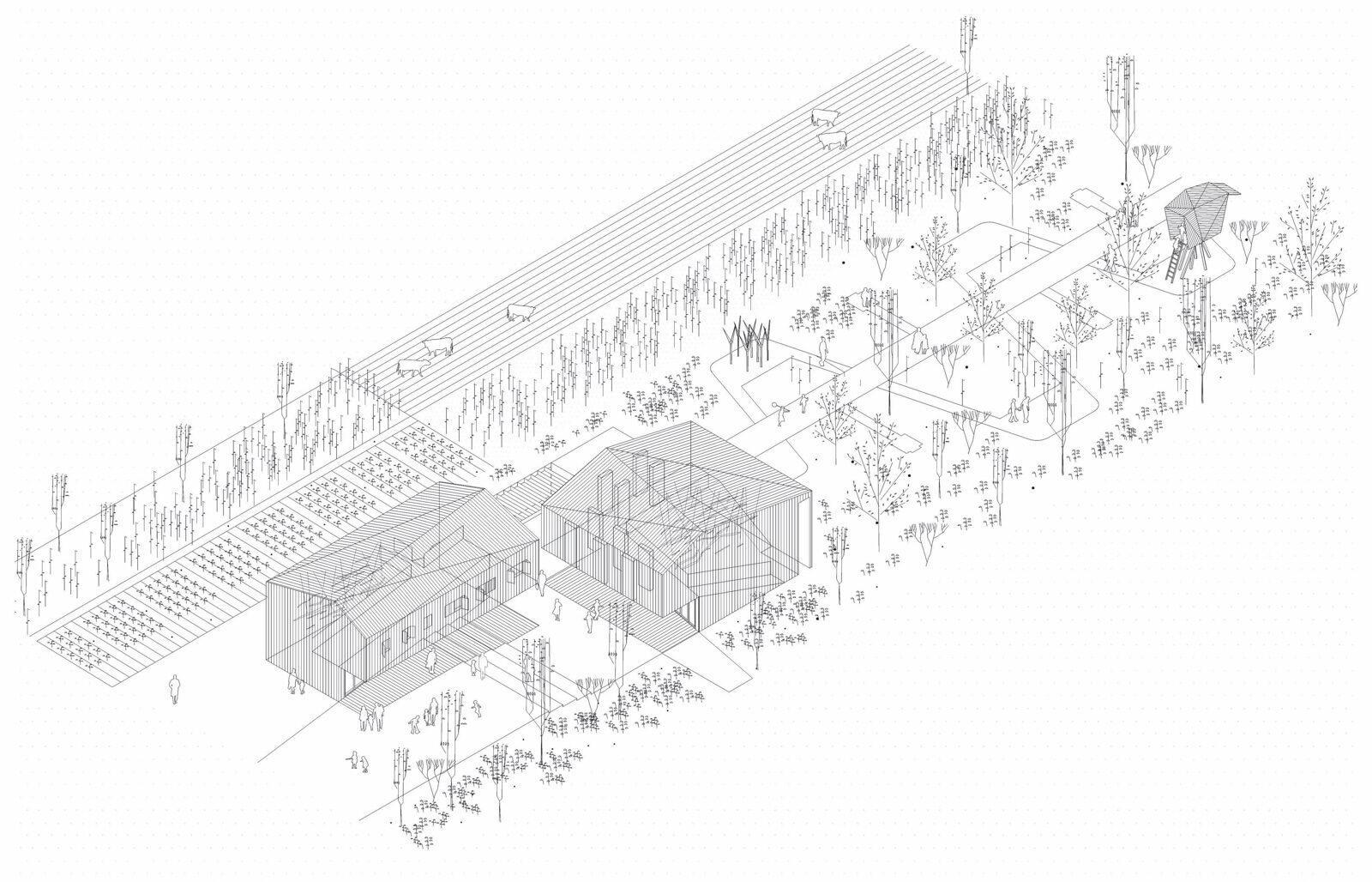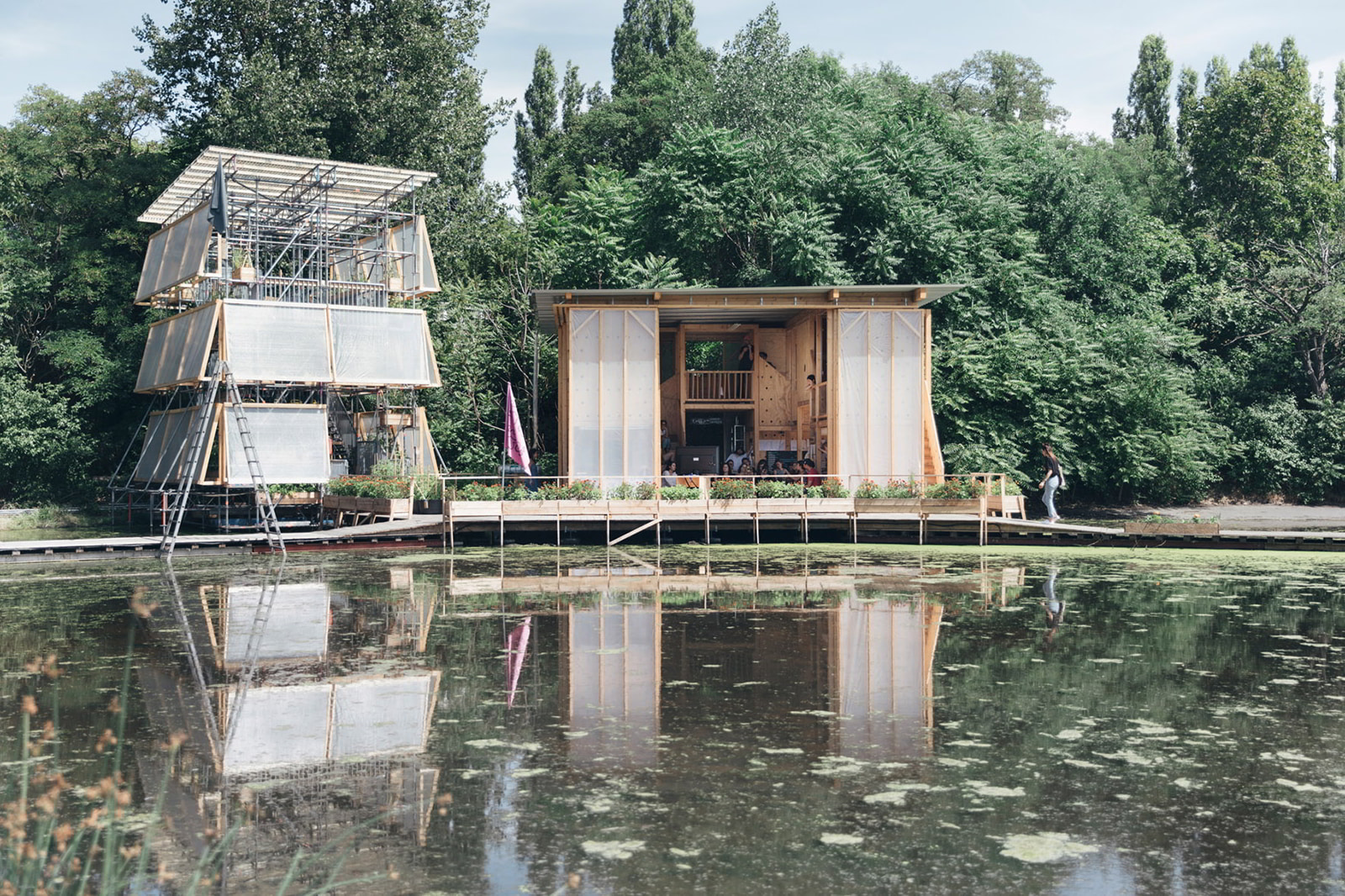The jury of Mies Van der Rohe awards shortlists the 40 works of the 2024 European Union Prize for Contemporary Architecture. The 7 members of the jury – Frédéric Druot, Martin Braathen, Pippo Ciorra, Tinatin Gurgenidze, Adriana Krnáčová, Sala Makumbundu, and Hrvoje Njiric – have chosen 40 works which highlight todays shared culture of architecture in Europe.
The announcement takes place with the opening of the EUmies Awards 2022 exhibition in Printworks Event and Exhibition Centre, Dublin Castle, Dublin, the last stop of the exhibition in the city of the 2022 Architecture Winners: Grafton Architects. The Royal Institute of the Architects of Ireland (RIAI) and Grafton Architects together with several other teams, have brought the exhibition for the first time to Ireland as an opportunity to connect the previous and the new 2024 cycle of the Prize.
The exhibition also shows the irishnominees from 2022 and 2024 and the Young Talent 2023 projects including Laura Hurley’s winning project “Peripheral Cartographies” (School of Engineering and Architecture, SEFS of the University College Cork & Munster Technological University). The EUmies Awards for Architecture and Emerging are granted biennially to works completed within the previous two years. The principal objective is to highlight and disseminate todays shared culture of architecture in Europe through works that create high-quality living environments for everyone.
The 2024 edition counts with 362 nominees which were thoroughly analysed and discussed by the president of the jury Frédéric Druot, together with jury members Martin Braathen, Pippo Ciorra, Tinatin Gurgenidze, Adriana Krnáčová, Sala Makumbundu, and Hrvoje Njiric before drawing up a shortlist of 40 for the next phase of the prize.
The shortlisted works are spread out in 20 different European countries. Spain has 6 shortlisted works (Barcelona, Castromonte, Derio, Gavà, Madrid and Son Servera), 4 are in Belgium (Anderlecht, Antwerp, Dilbeek and Sint-Jans-Molenbeek), 4 are in Germany (two in Berlin, Braunschweig and Karlsruhe), 3 in Croatia (Cret Viljevski, Osekova and Zagreb), 3 in France (Grasse, Santa Lucia d’Attallà and Saint-Méen Le Gard), 3 in Portugal (Coimbra, Piódao and Porto), 2 in Austria (both in Vienna), 2 in Slovenia (Bohinjska Bistrica and Satre Slemene-Slovenske Konjice), 2 in Sweden (Lund and Stockholm), and 1 in Czechia (Ostrava), 1 in Estonia (Tartu), 1 in Georgia (Tbilisi), 1 in Greece (Samos), 1 in Ireland (Dublin), 1 in Italy (Auronzo di Cadore), 1 in The Netherlands (Almere), 1 in Norway (Oslo), 1 in Poland (Blonie), 1 in Romania (Timisoara) and 1 in Slovakia (Bratislava).
The EUmies Awards Out & About program starting in May 2024 will bring all these works closer to everybody by organising visits, lectures, or other events with their authors, contributing to a better knowledge of them. They can also be virtually visited here and all the information can be found on the web page of EU Mies Awards.
There is an important number of transnational works, buildings which have been built by a studio from one country in another country. The Munch Museum has been built by a Madrid studio (estudioHerreros, Spain) in Oslo (Norway); the Nursery 1306 plants by a Barcelona studio (MAIO, Spain) in Timisoara (Romania) with two local teams (Studio Nomadic and Studio Peisaj); the Bohinj Kindergarten by teams from Madrid (KAL A, Spain) and Ljubljana (ARREA, Slovenia) in Bohinjska Bistrica (Slovenia); the Hage by a Trondheim studio (Brendeland & Kristoffersen, Norway) in Lund (Sweden); and the Plato Contemporary Art Gallery by a Katowice studio (KWK Promes, Poland) in Ostrava (Czech Republic). Only 22% of the works have been built by studios from the same city as the work location.
7 works are in villages with less than 500 inhabitants, including the Black Slovanian eco pig farm (SKROZ) in Cret Viljevski which counts with 51 inhabitants and the Bivouac Fanton (DEMOGO) which stands in the Dolomite mountains by itself. 13 other works are in cities with less than 100.000 inhabitants which means that half of the works are in relatively small urban congregations and only six works (15%) are in metropolis bigger than 1 million inhabitants.
The 40 works are examples of how architects continue to undertake the need to design to live responsibly, ethically, and environmentally.
There are different paths to reach this end and the 40 works are examples of how architects continue to undertake the need to design to live responsibly, ethically, and environmentally and that Architecture, Urban Planning and Governance need to work together in an even stronger way to achieve long term city projects. Ambition has been a frequently used word following the responsibility of architecture being an activity of public interest because it is at the core of society – and the need to promote the architectural quality of buildings, of public spaces and of planning.
The jury met over three days in Barcelona to discuss the current state of architecture considering Europe’s aim to lead on the one hand on high-quality architecture for everyone and on the other hand, to lead the way on climate action and shape the green transition for the benefit of citizens and industries: the European Green Deal.
The European Commission and the Fundació Mies van der Rohe are proud to announce the 40 shortlisted works that will compete in the 2024 European Union Prize for Contemporary Architecture – Mies van der Rohe Awards.
Projects in Austria
Townhouse Neubaugasse in Vienna by PSLA Architects
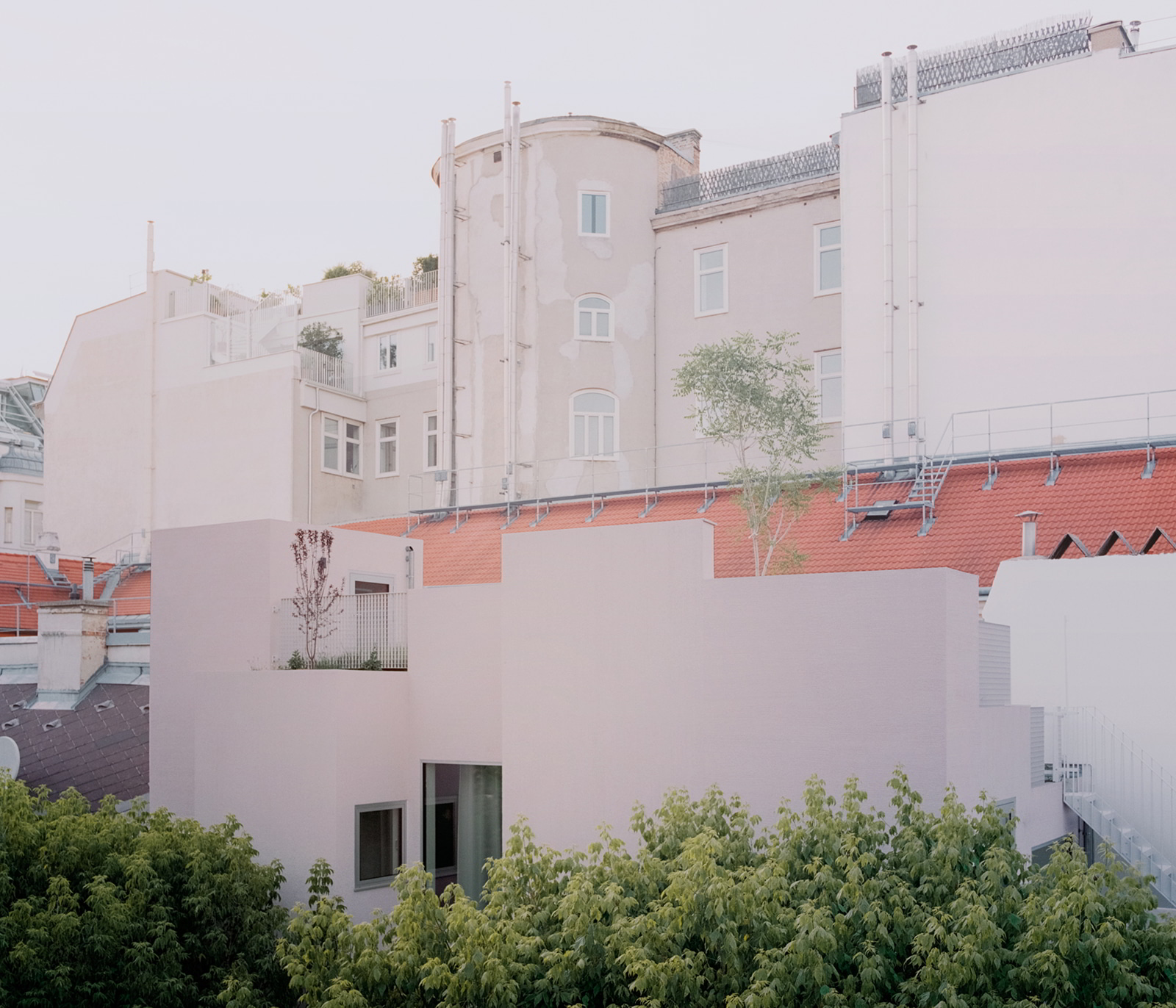
IKEA Vienna western station in Vienna by Querkraft Architects
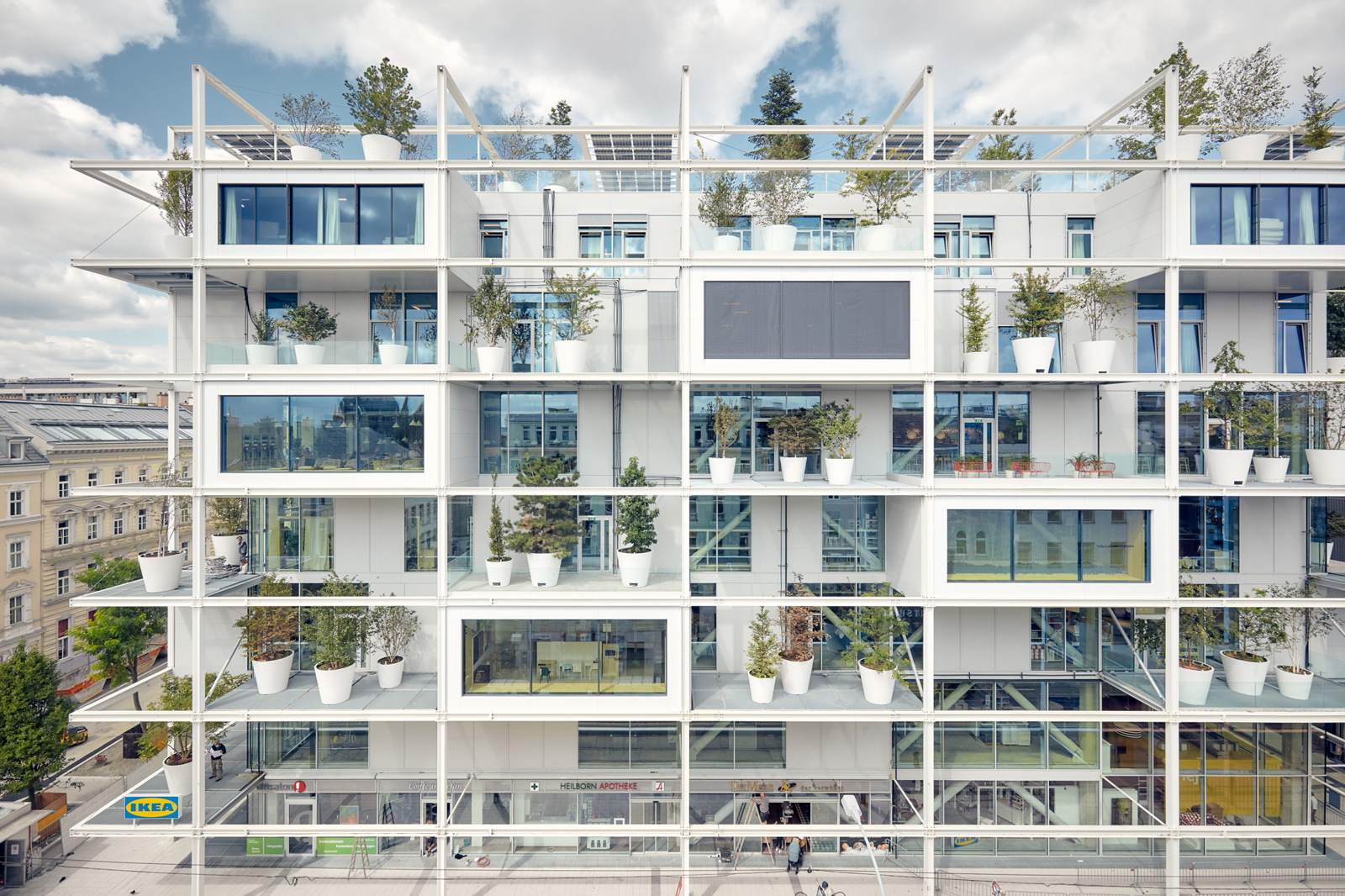
Projects in Belgium
Fire Station, Multi-Purpose Space, and Emergency Housing in Dilbeek by Studio SNCDA
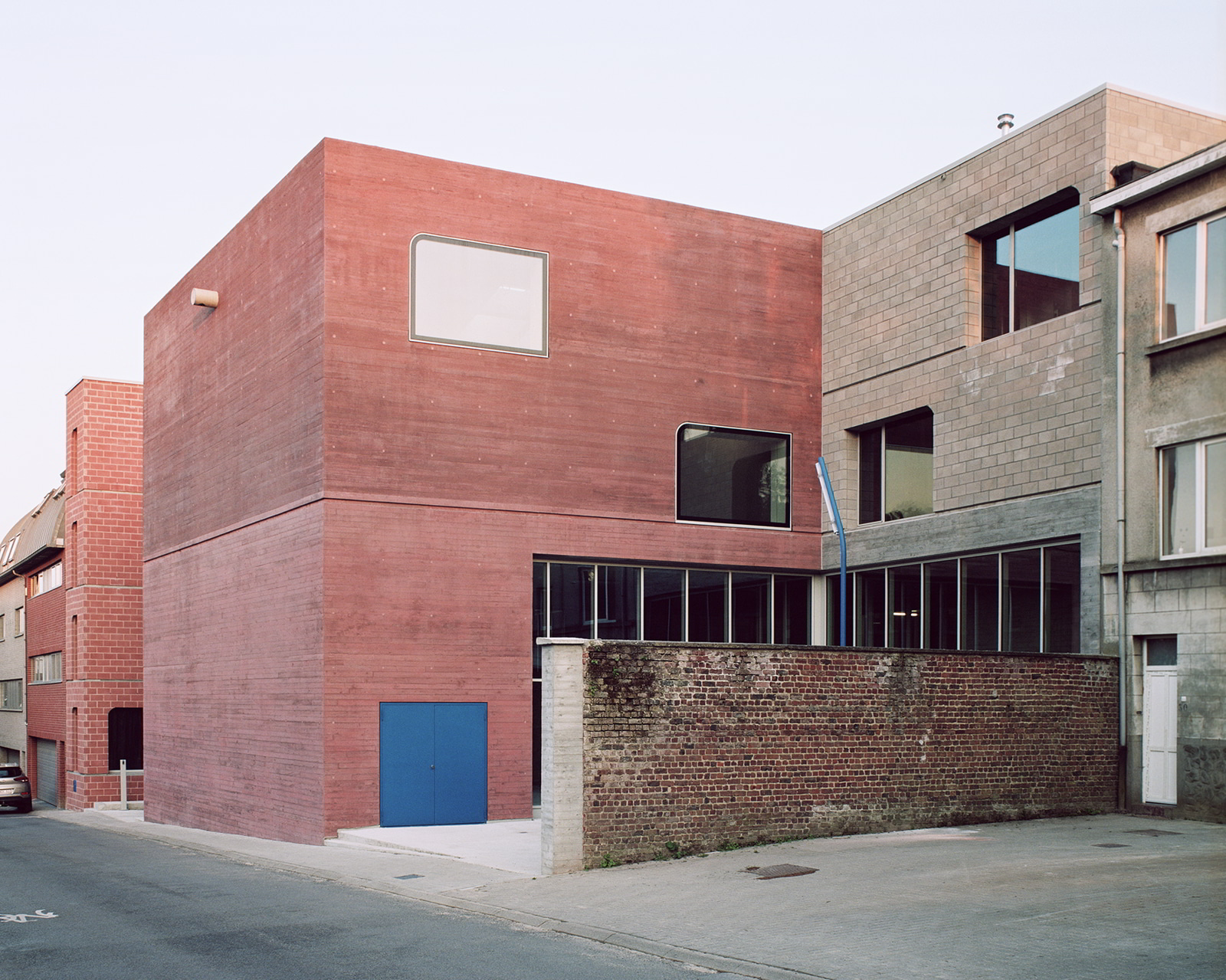
Open air swimming pool FLOW in Anderlecht by Decoratelier Jozef Wouters & Pool is cool

Het Steen in Antwerp by noAarchitecten
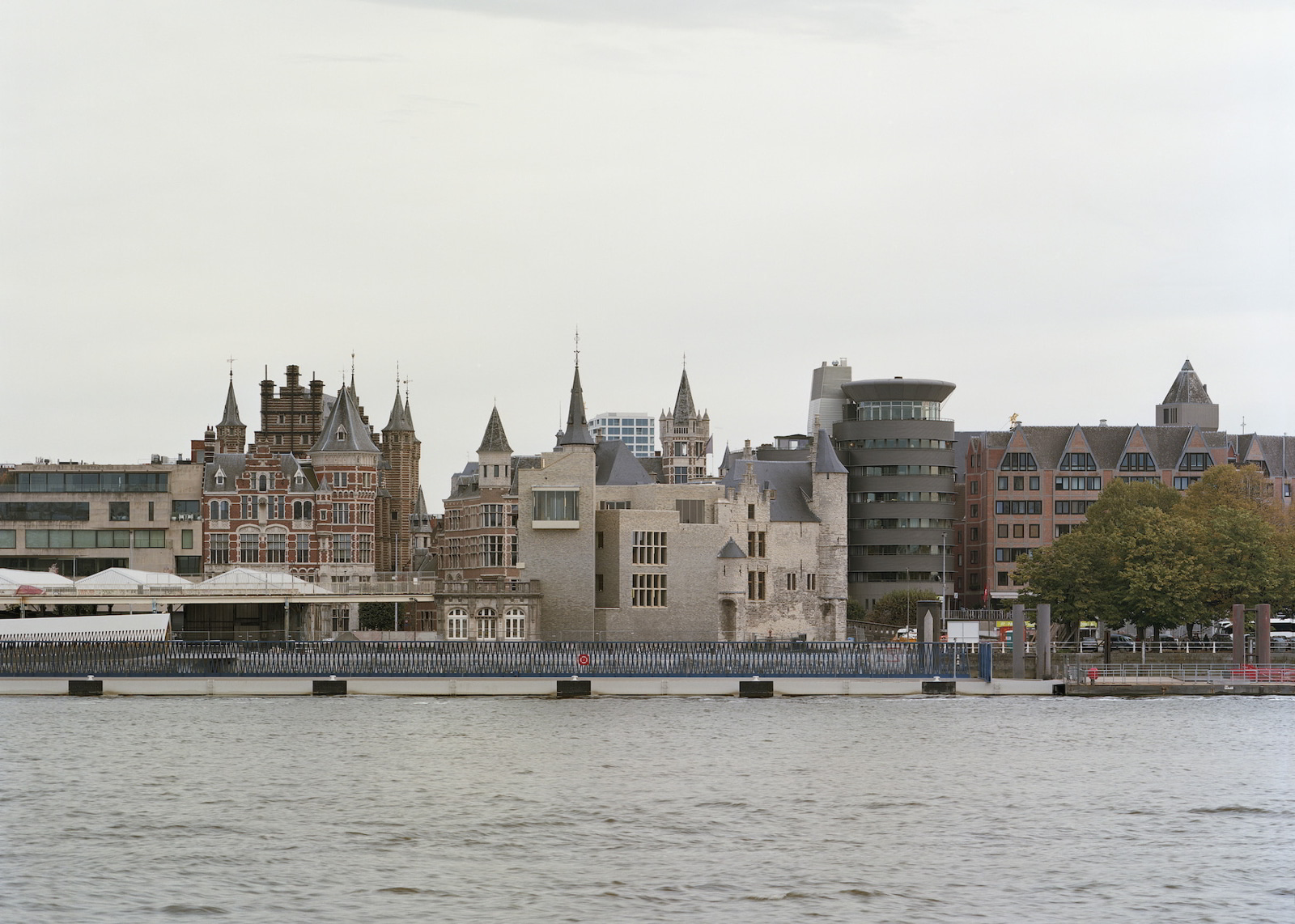
Amal Amjahid – community facility along the canal in Sint-Jans-Molenbeek by &bogdan studio
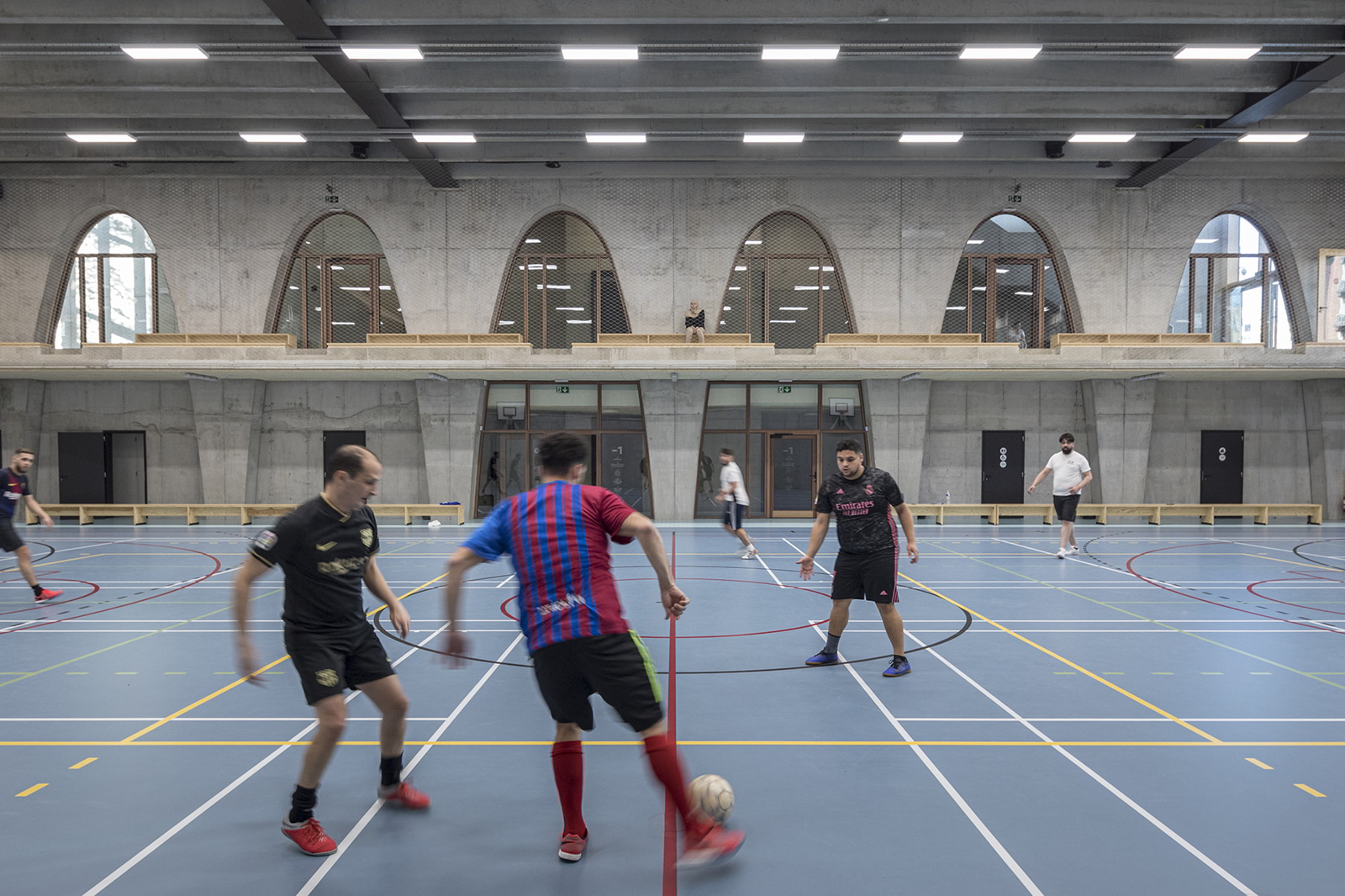
Projects in Croatia
Lonja Wetlands Wildlife Observatories and Visitor Centre in Osekovo by Roth & Čerina studio
Riding Hall. Land Registry Department-Municipal Civil Court in Zagreb by MORE arhitekture d.o.o.

Black Slavonian eco pig farm in Cret Viljevski by SKROZ d.o.o.
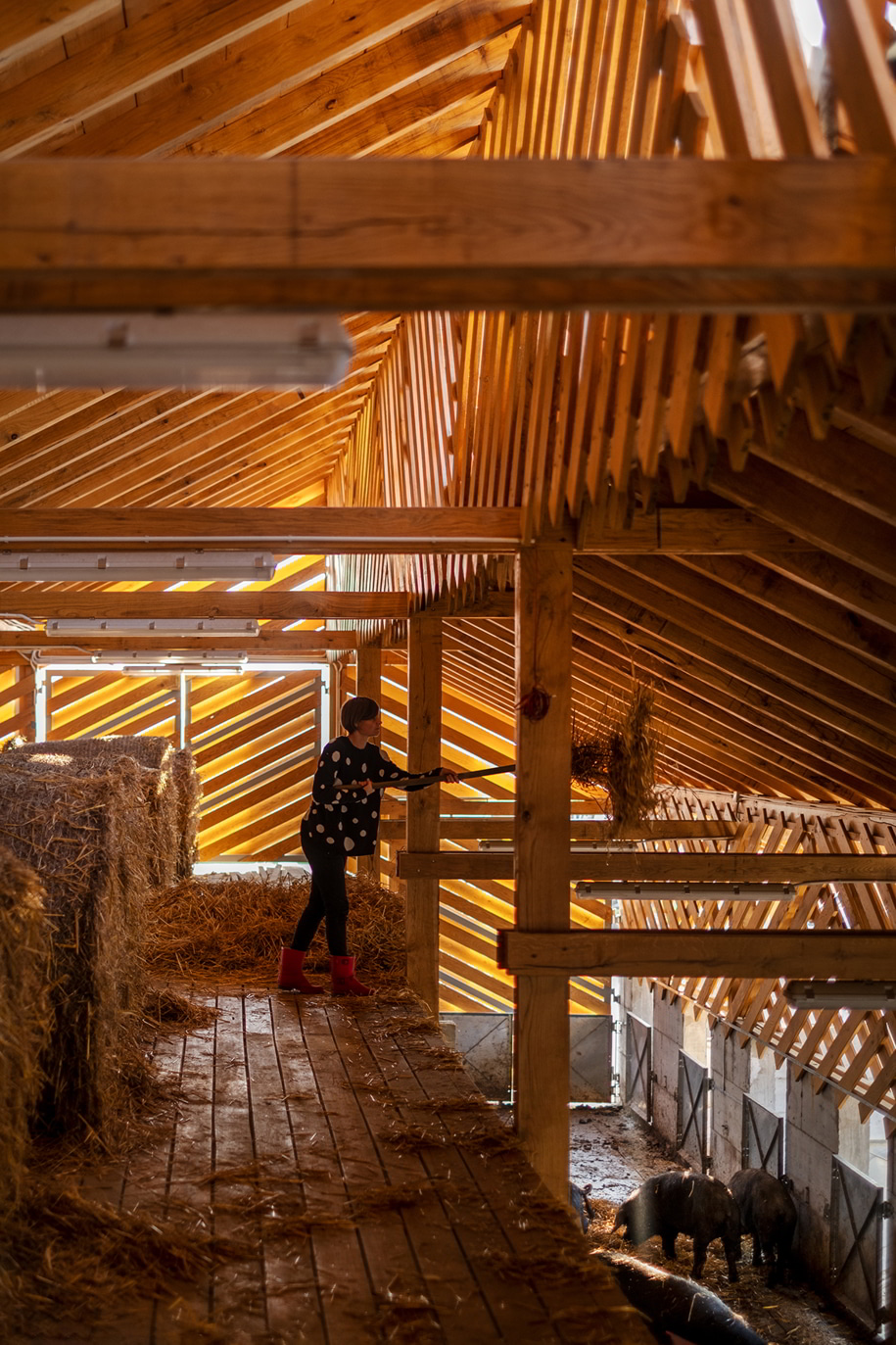
Projects in Czech Republic
Plato contemporary Art Gallery in Ostrava by KWK Promes
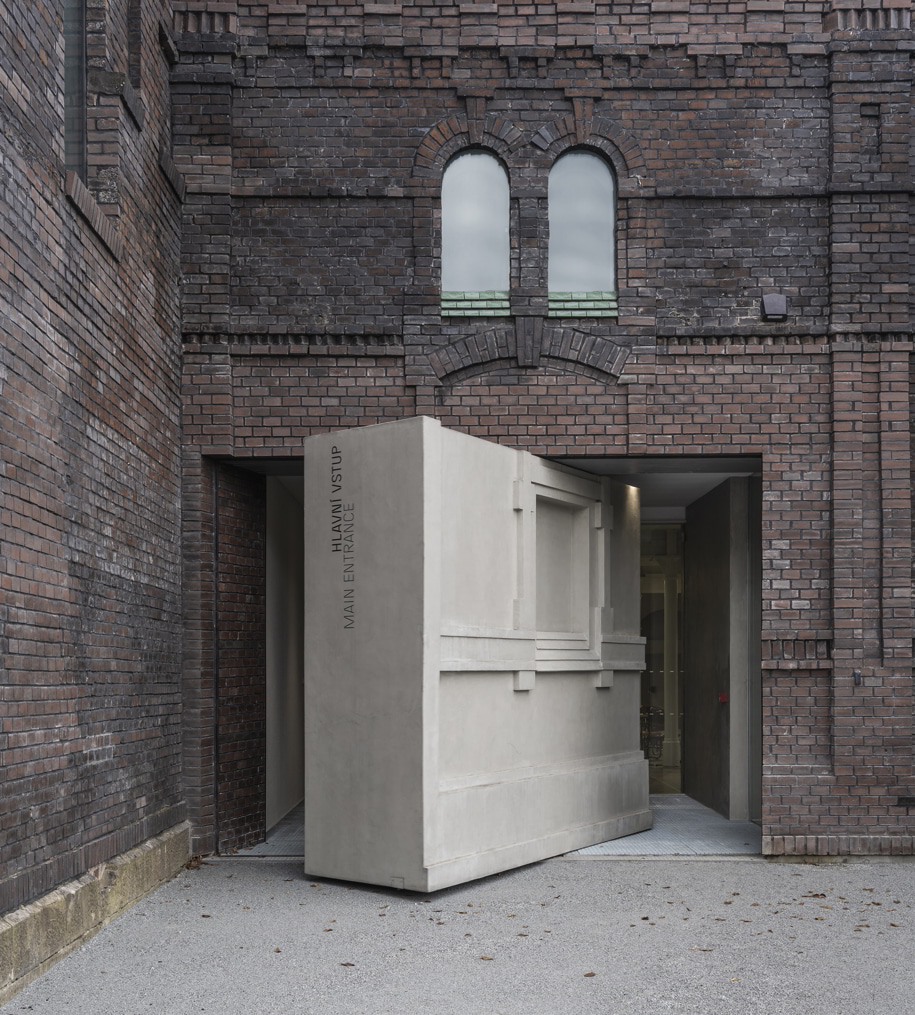
Projects in Εstonia
Son of a Shingle-Vaksali pedestrian bridge and underpasses in Tartu by PART architects
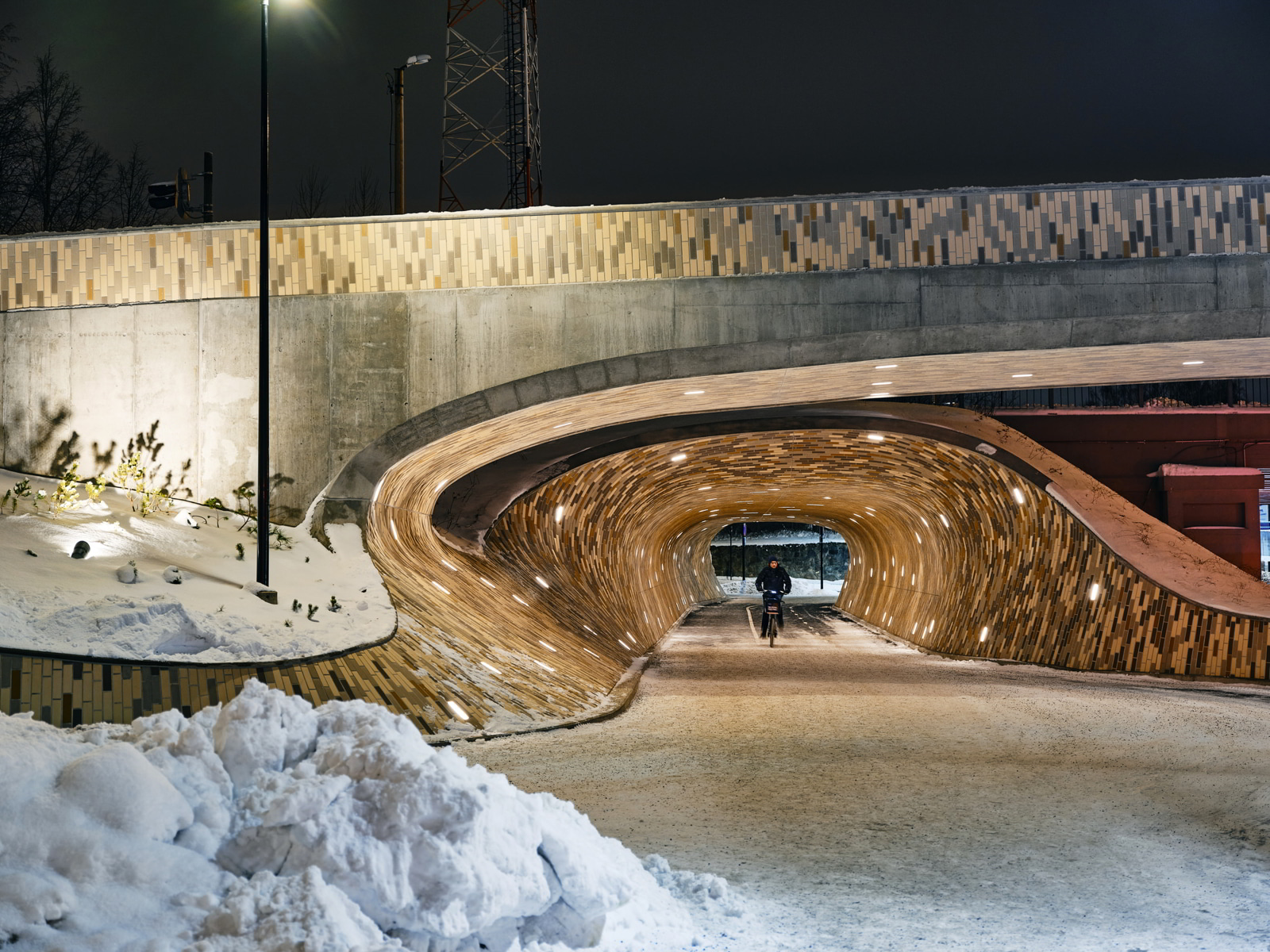
Projects in France
Refurbishment and extension of a community swimming pool in Saint-Méen-Le-Grand by RAUM
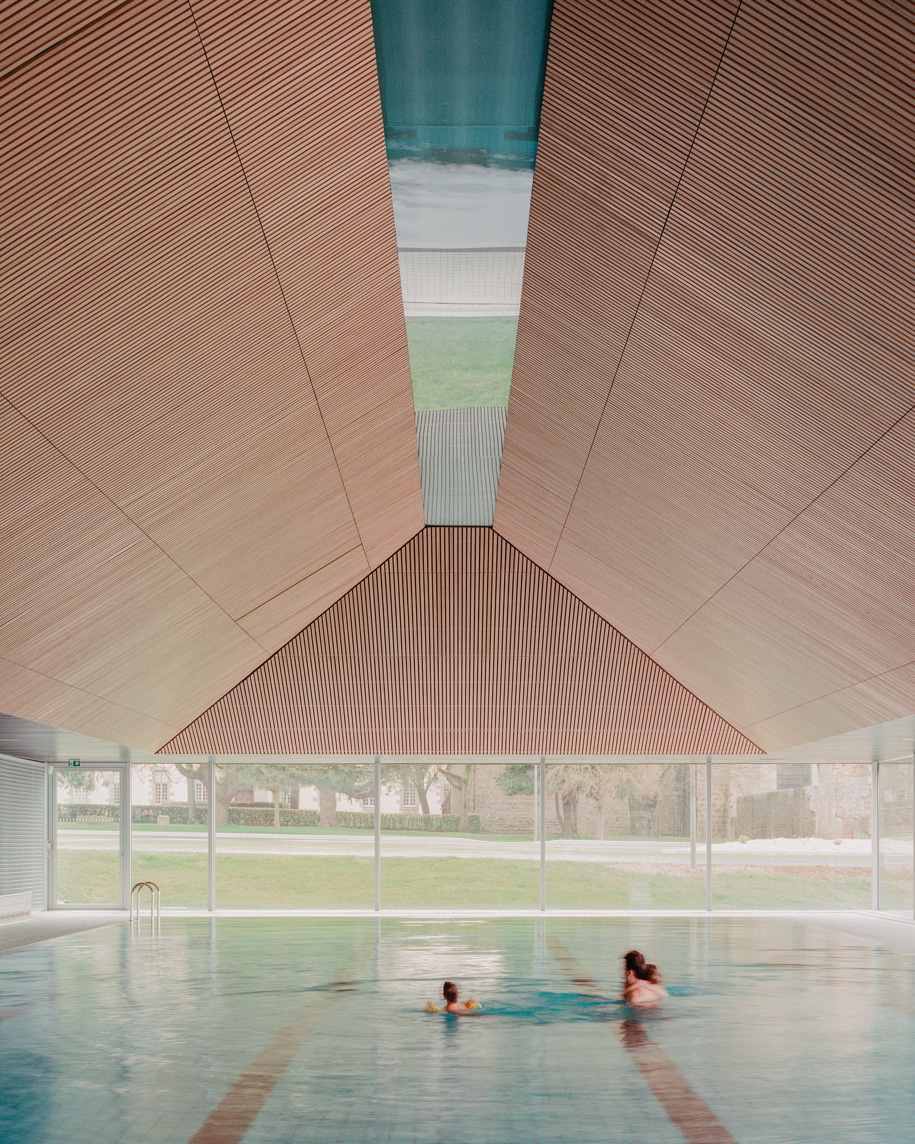
Média Library Charles Nègre in Grasse by Beaudouin Architectes & Ivry Serres Architecture
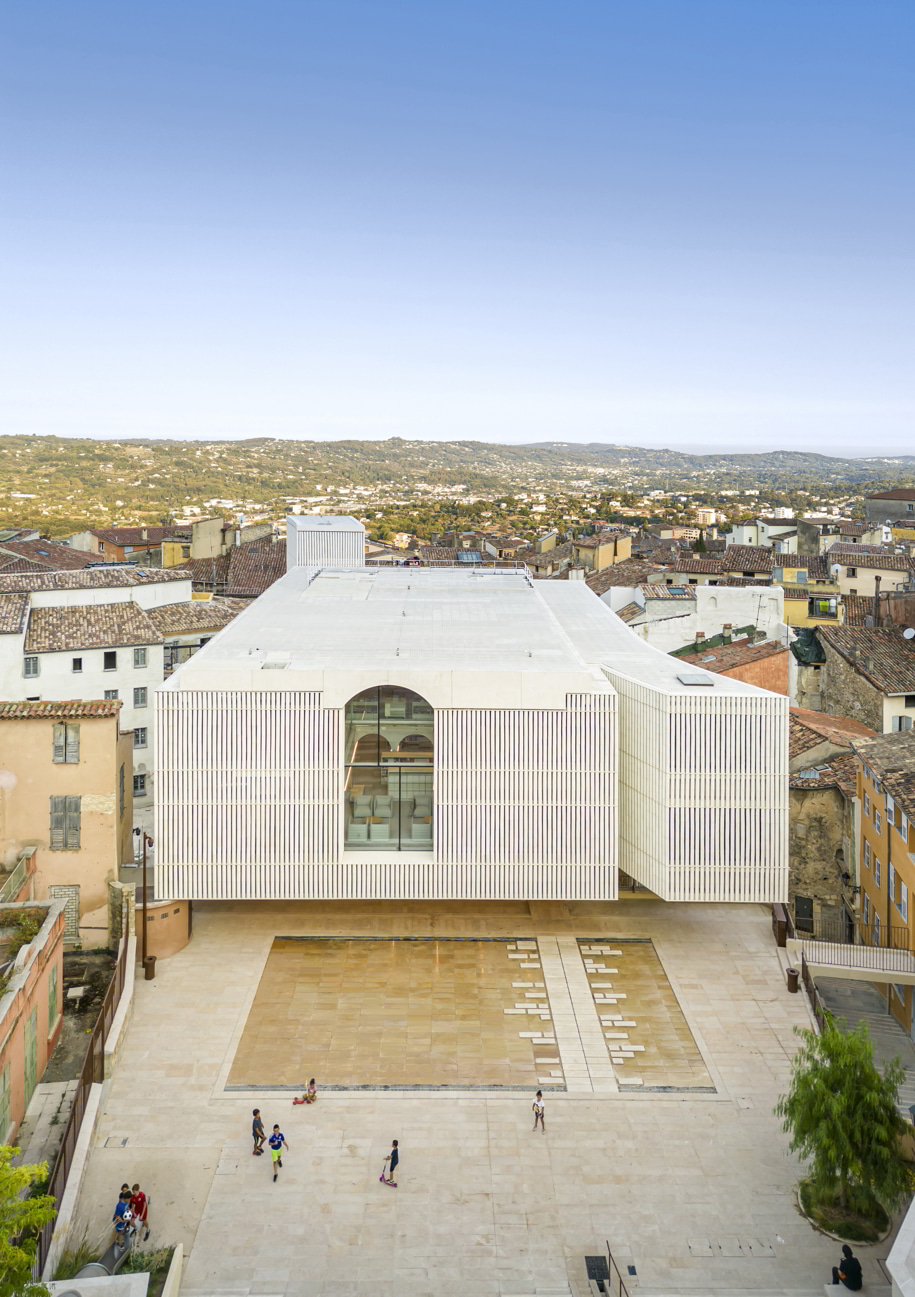
Rebirth of the Convent Saint-François in Sainte-Lucie-de-Tallano by Amelia Tavella Architectes
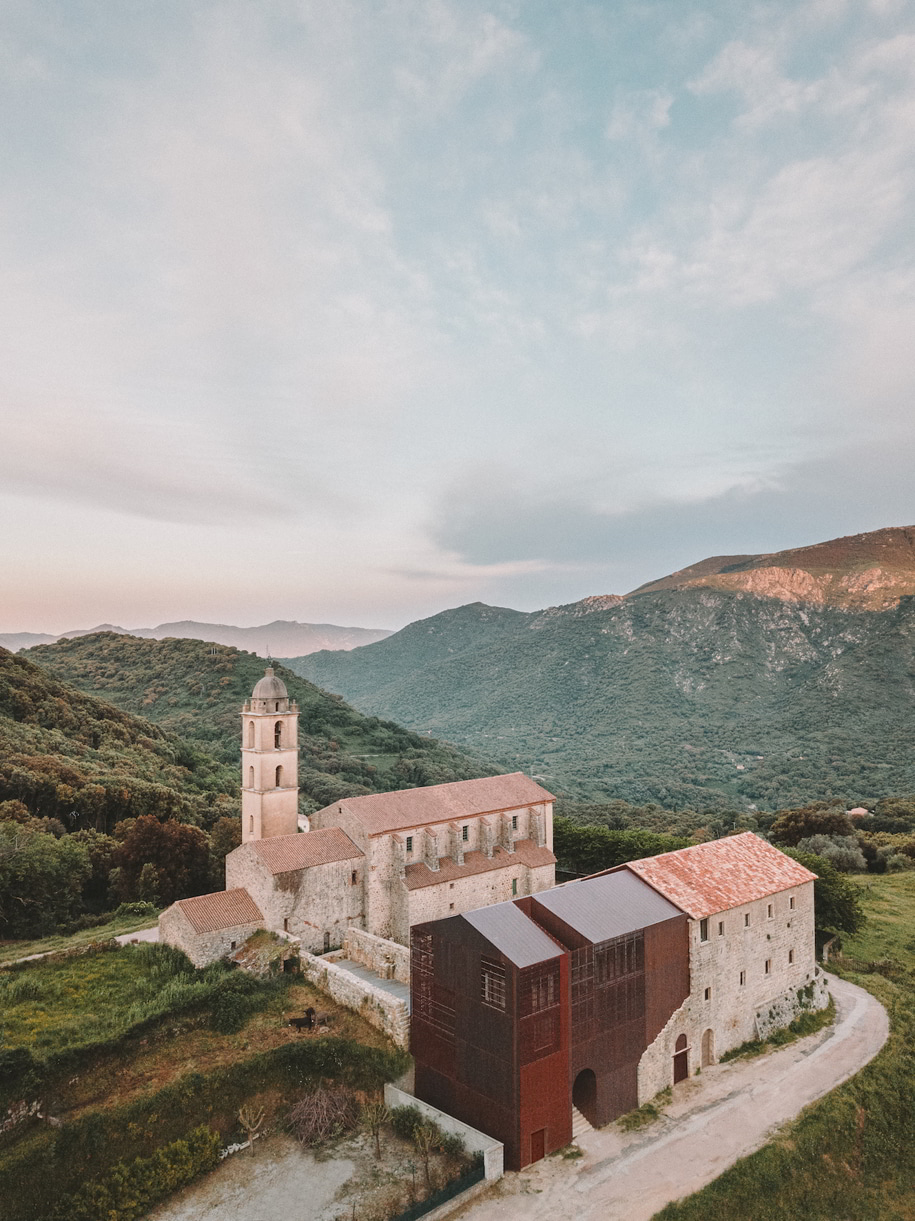
Projects in Georgia
Urban Forest (Narikala Ridge Forest) in Tbilisi by Ruderal

Projects in Germany
Study Pavilion on the campus of the Technical University of Braunschweig by Gustav Düsing & Max Hacke
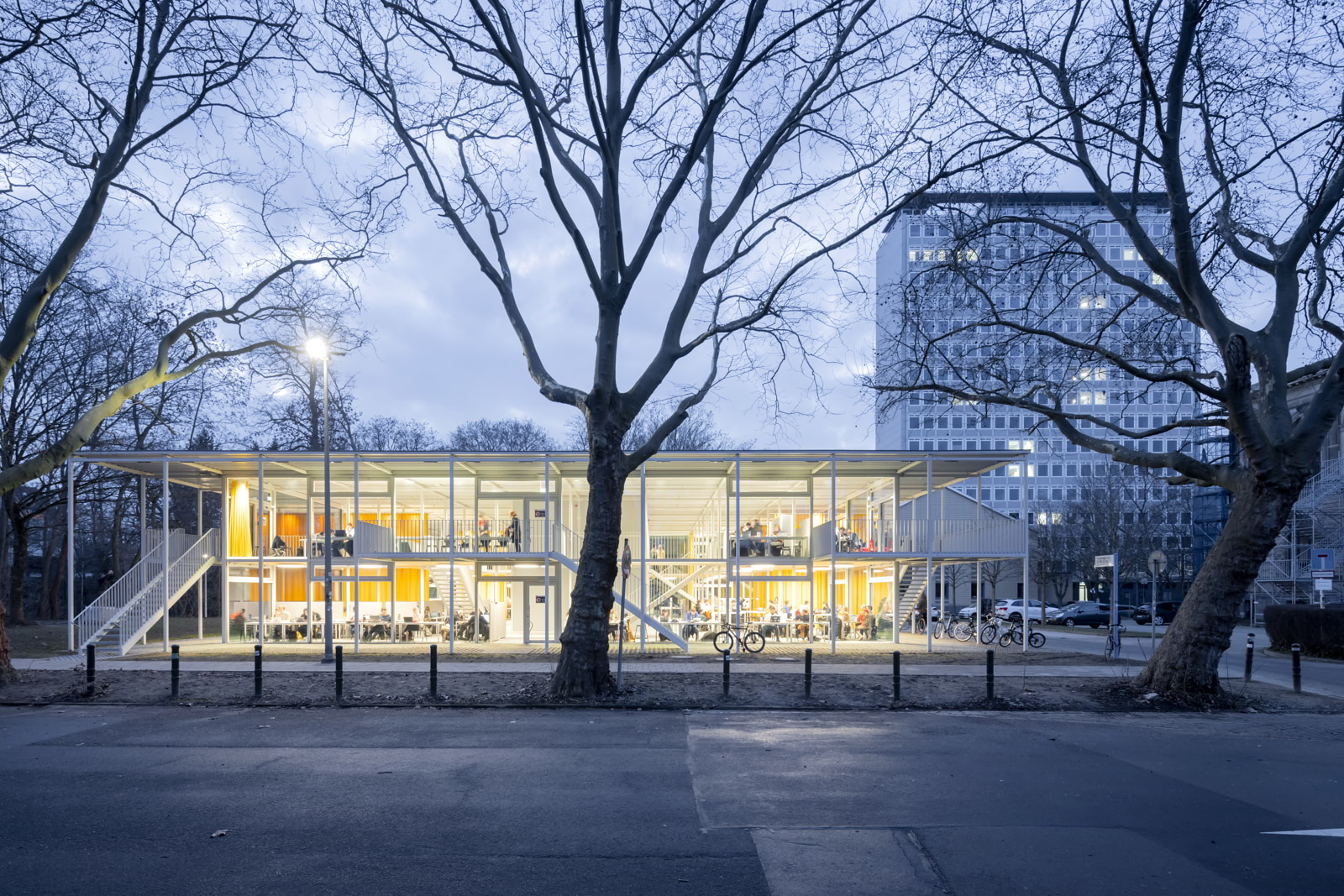
Floating University in Berlin by Floating e.V. Association
Building Community Kurfürstenstrasse in Berlin by June14 Meyer-Grohbrügge & Chermayeff
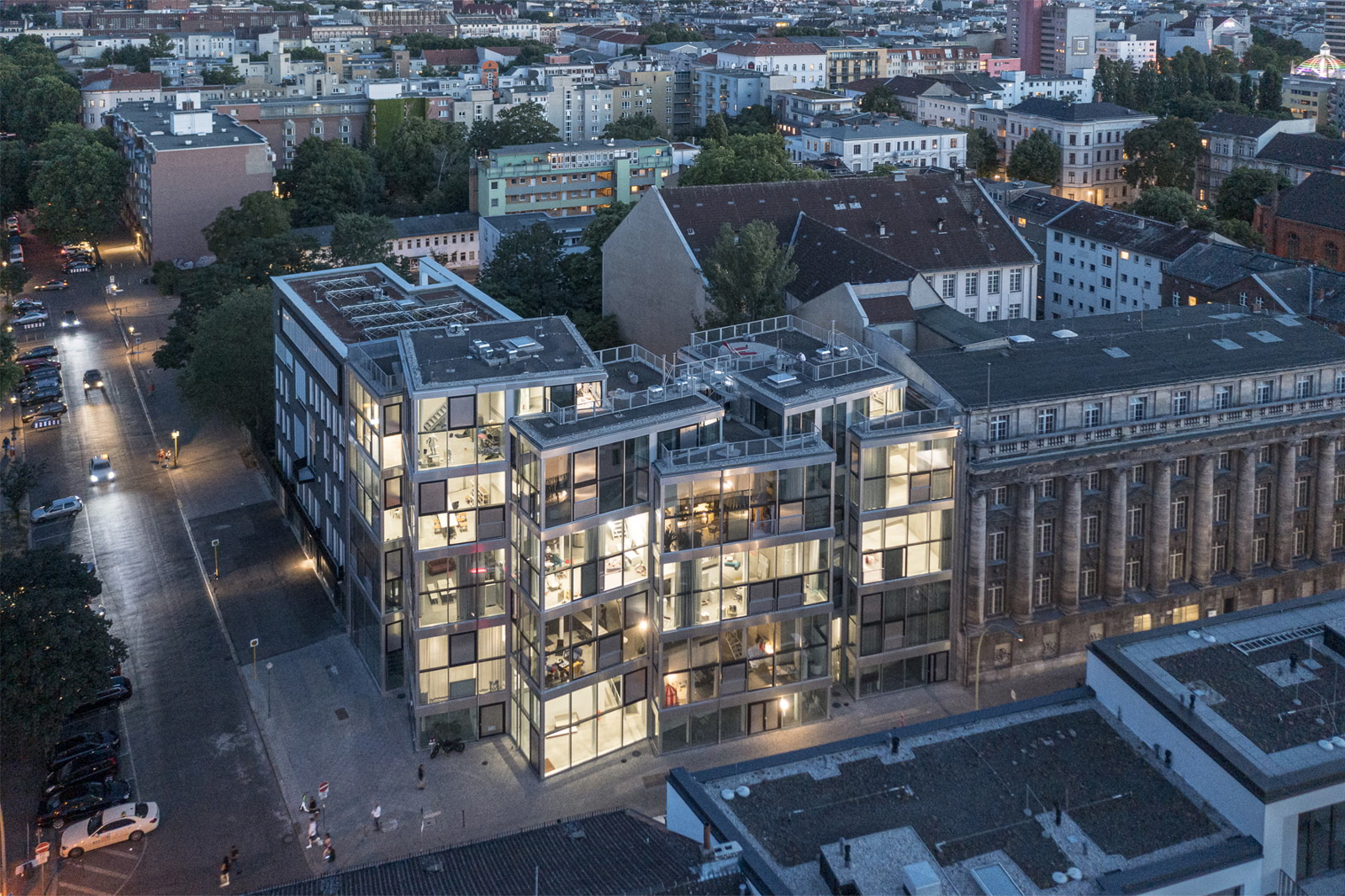
Light Rail Tunnel in Karlsruhe by allmannwappner
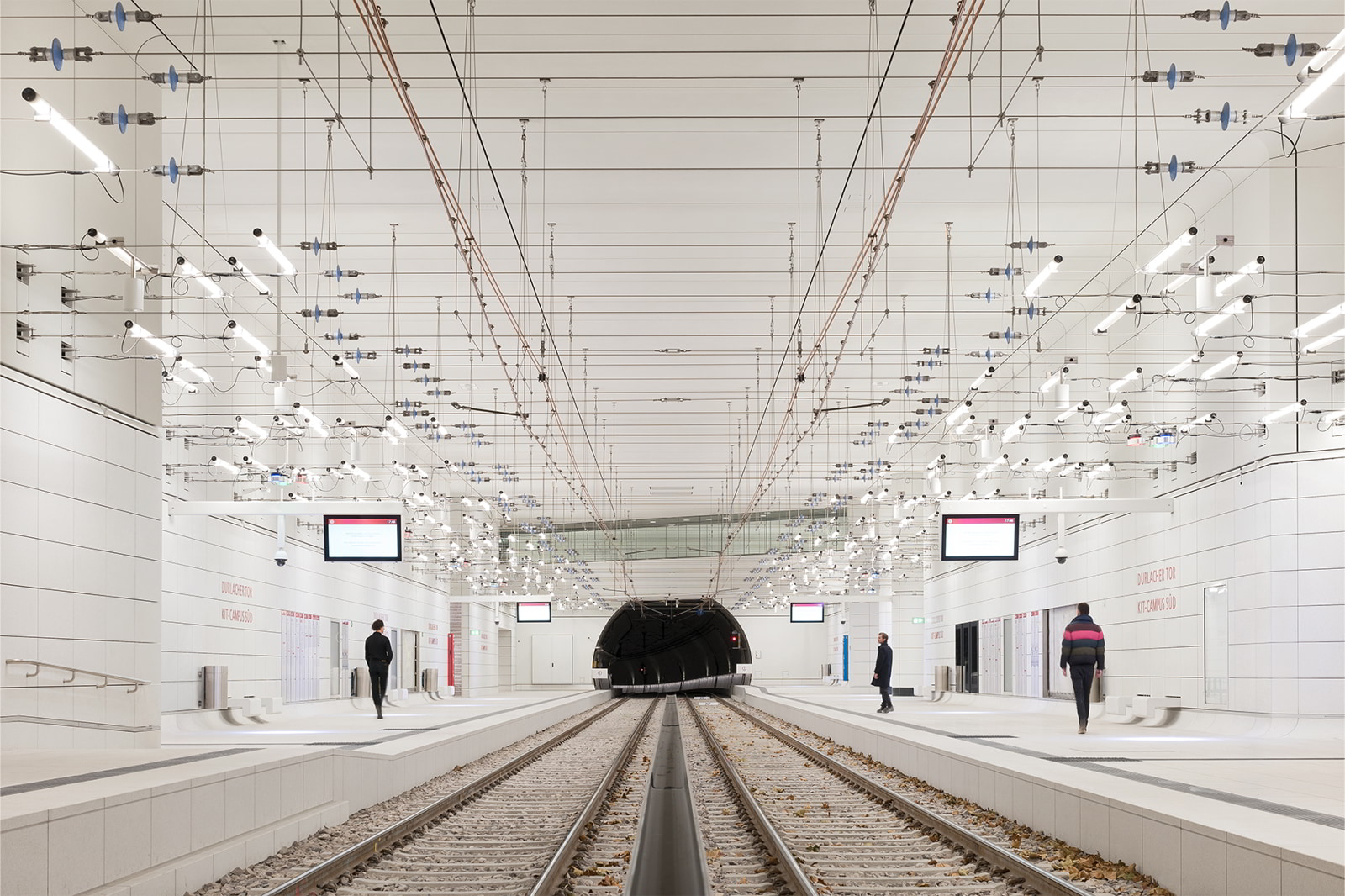
Projects in Greece
Liknon in Samos by K-Studio

Find out more about the project here
Projects in Ireland
Annesley Gardens by Metropolitan Workshop LLP
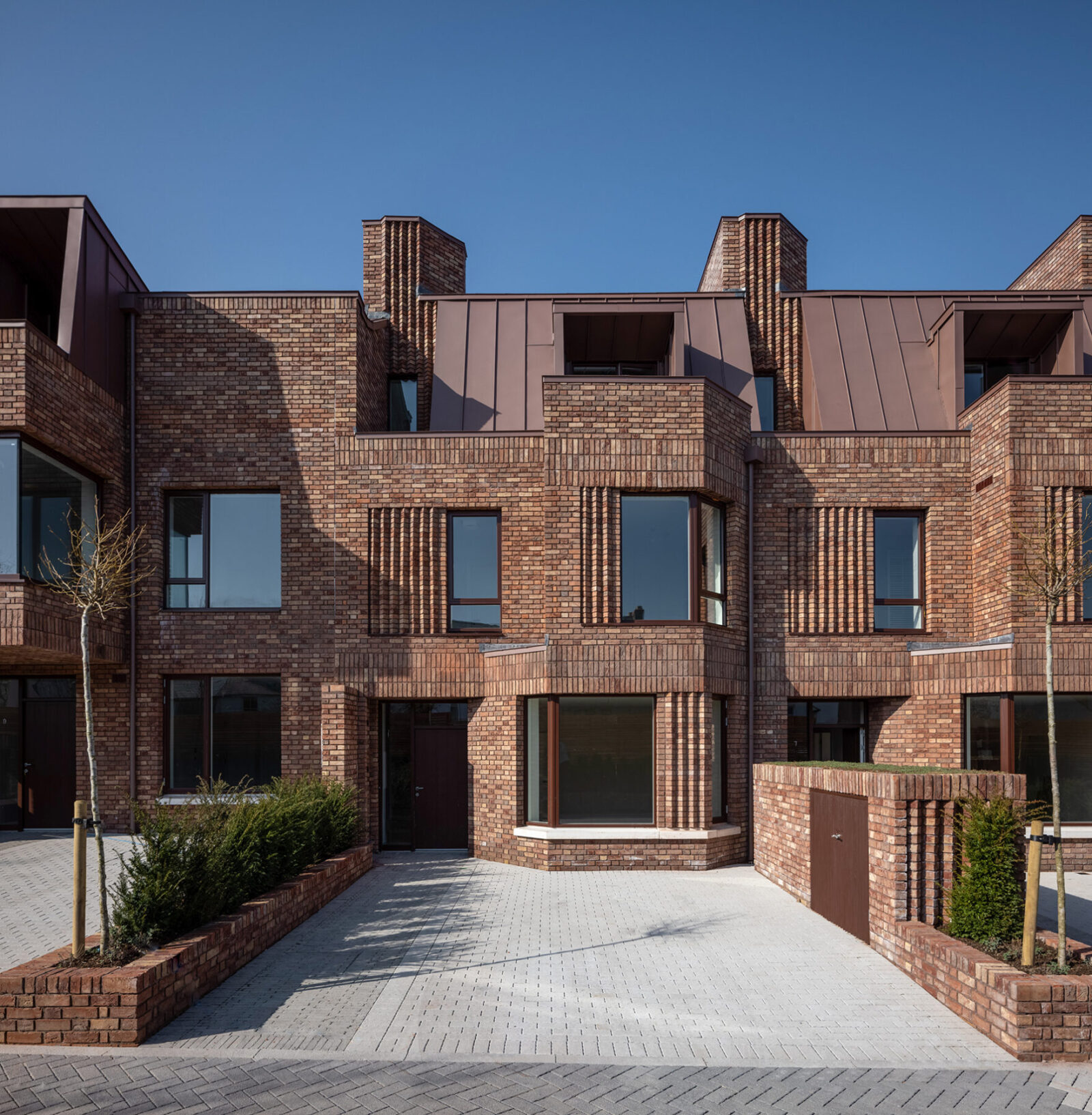
Projects in Italy
Bivouac Fanton by DEMOGO studio di architettura
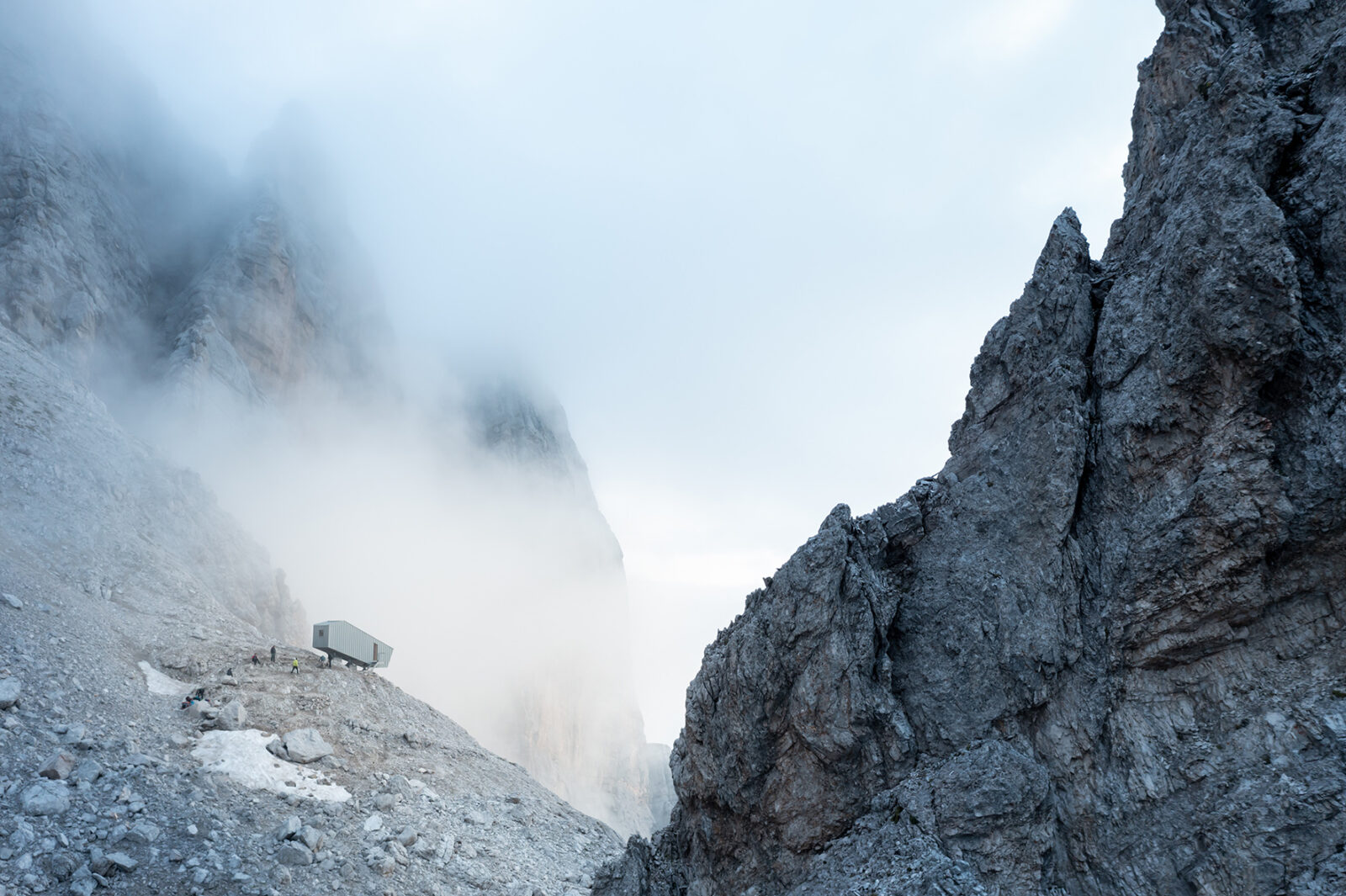
Projects in Norway
Munch museum by estudioHerreros
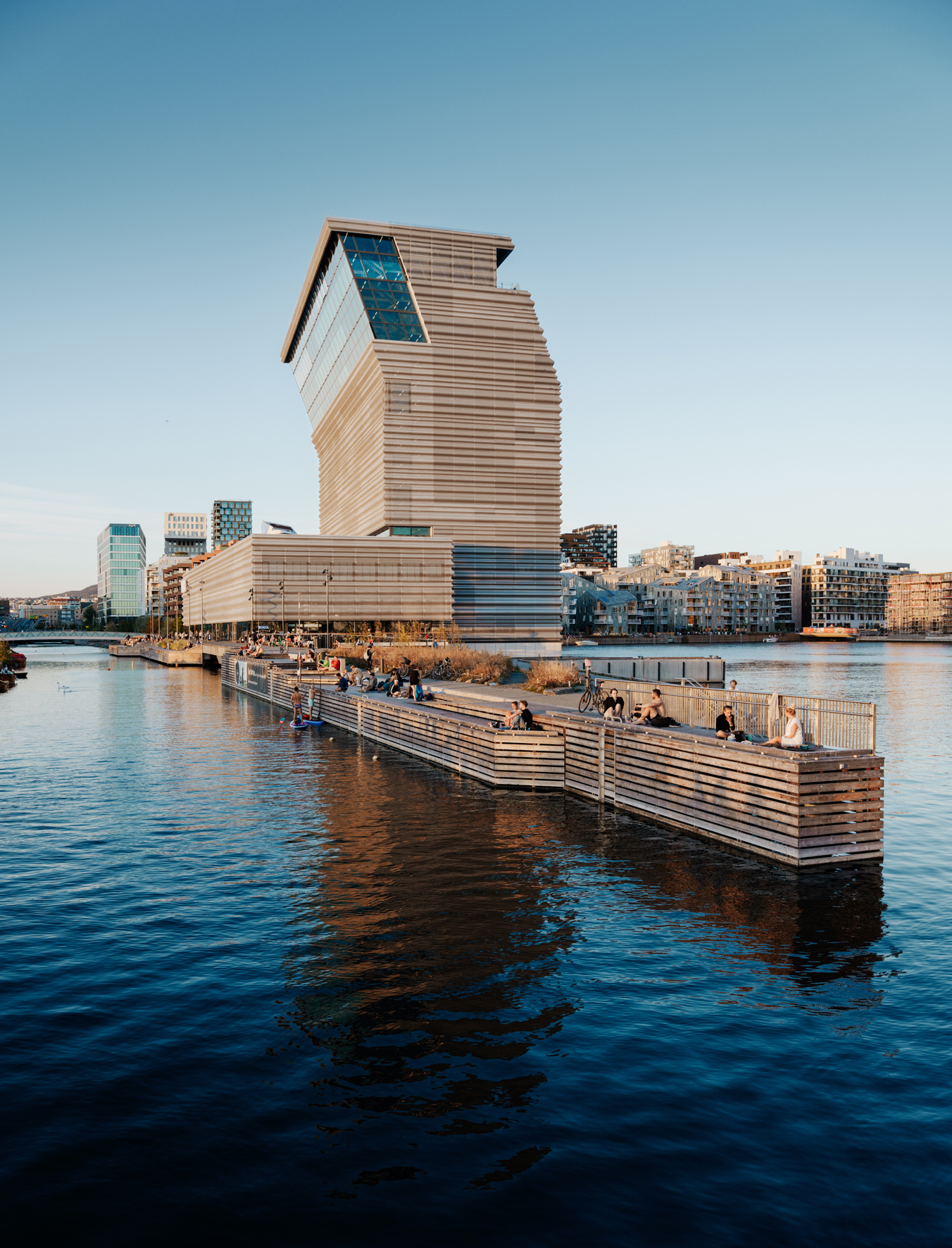
Projects in Poland
Targ Blonie – Food Market by Pracownia Architektoniczna Aleksandra Wasilkowska
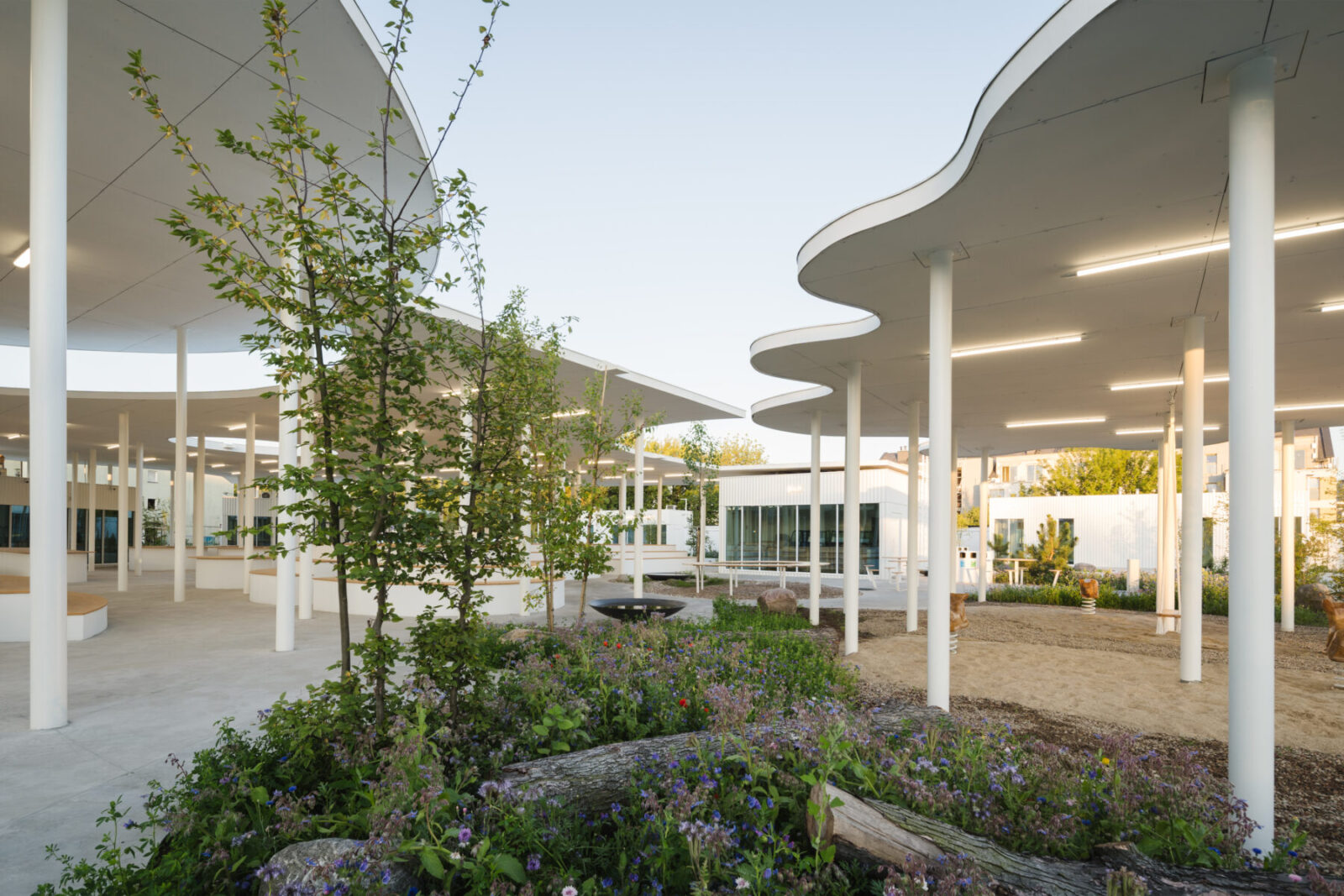
Projects in Portugal
Escadinhas Footpaths by Paulo Moreira Architectures + Verkron
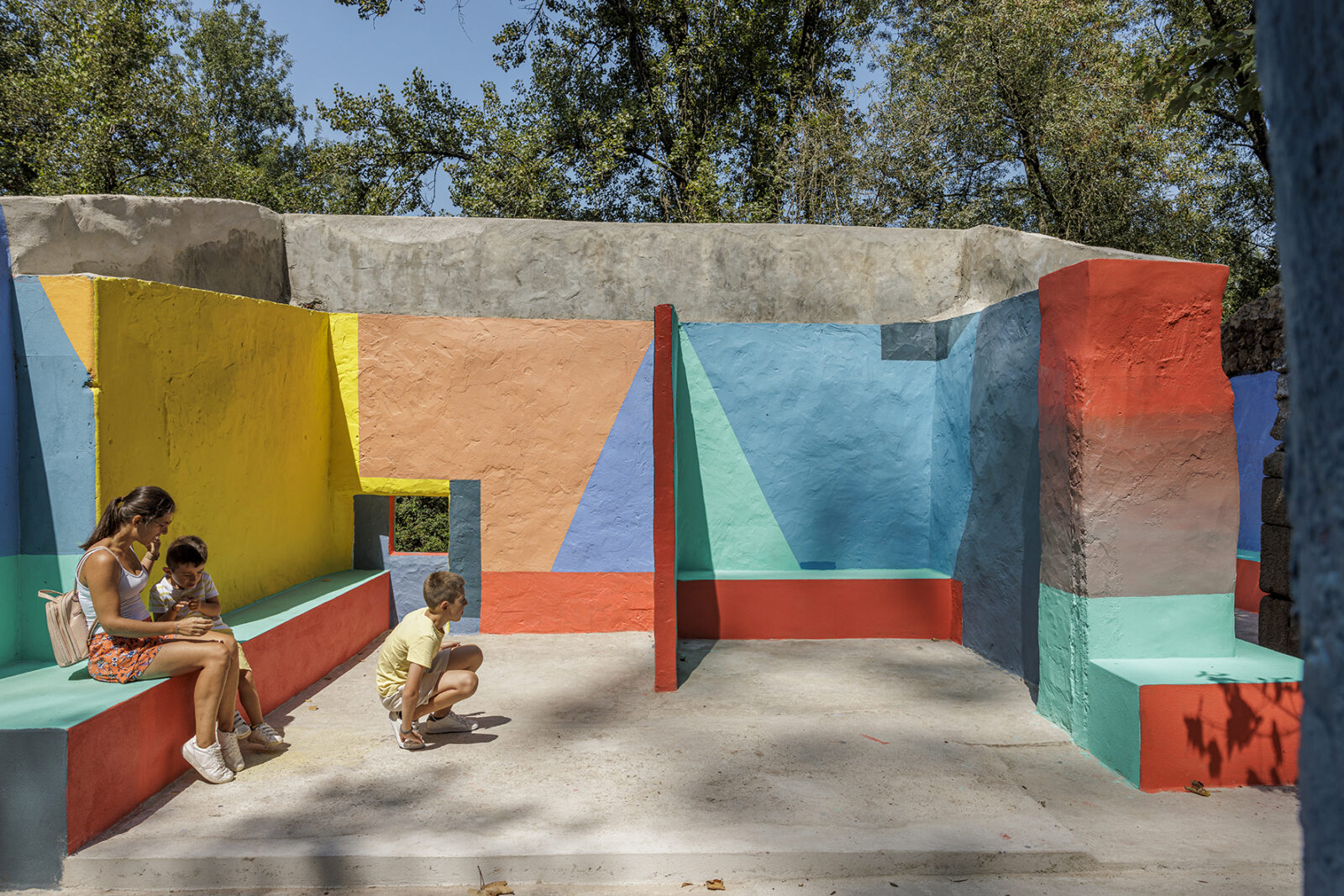
General Silveira Building by ATA Atelier ENTRETEMPOS

Square and Tourist Office, Piódão by Branco del Rio
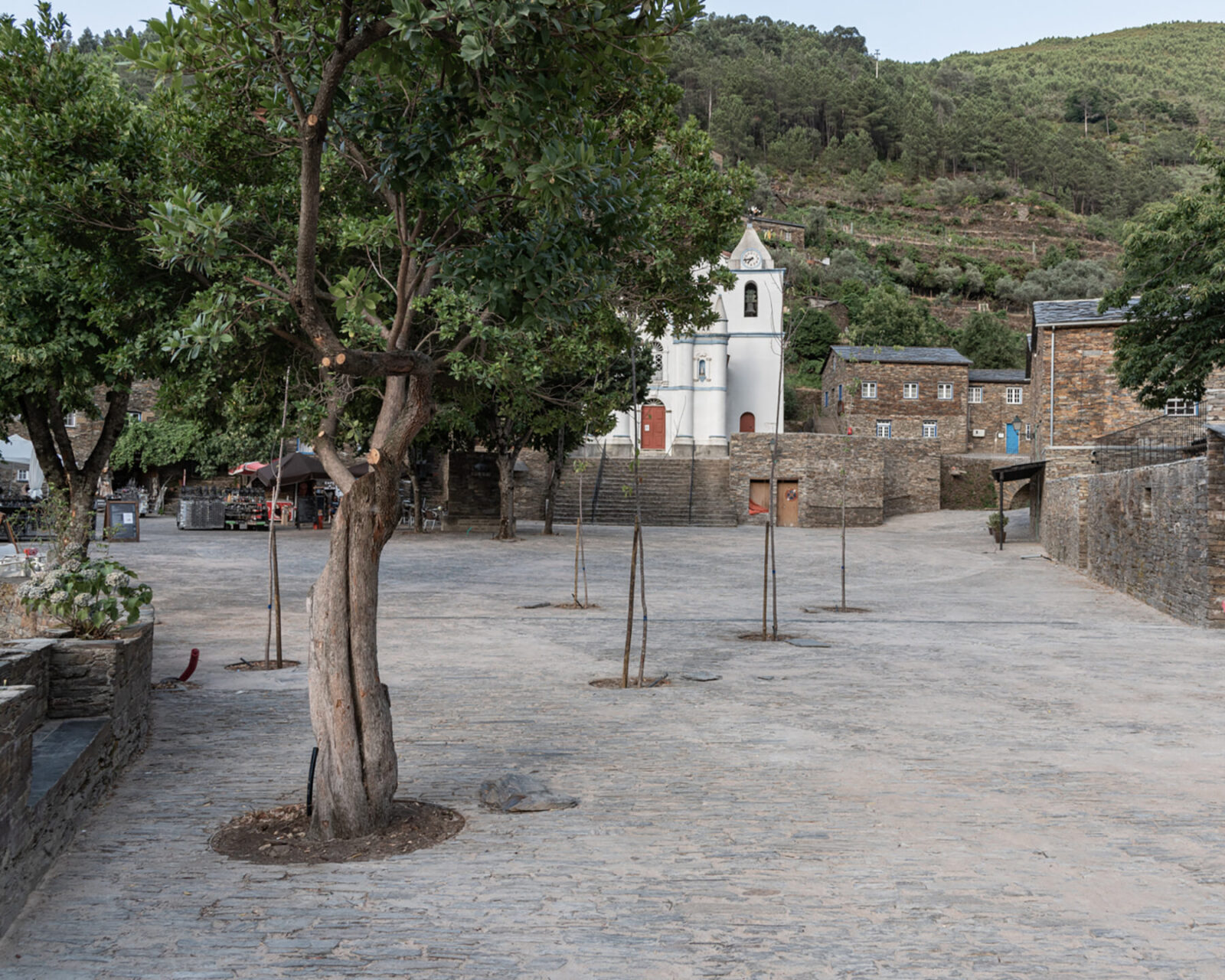
Projects in Romania
Nursery. 1306 plants for Timișoara by MAIO; Studio Nomadic; Studio Peisaj
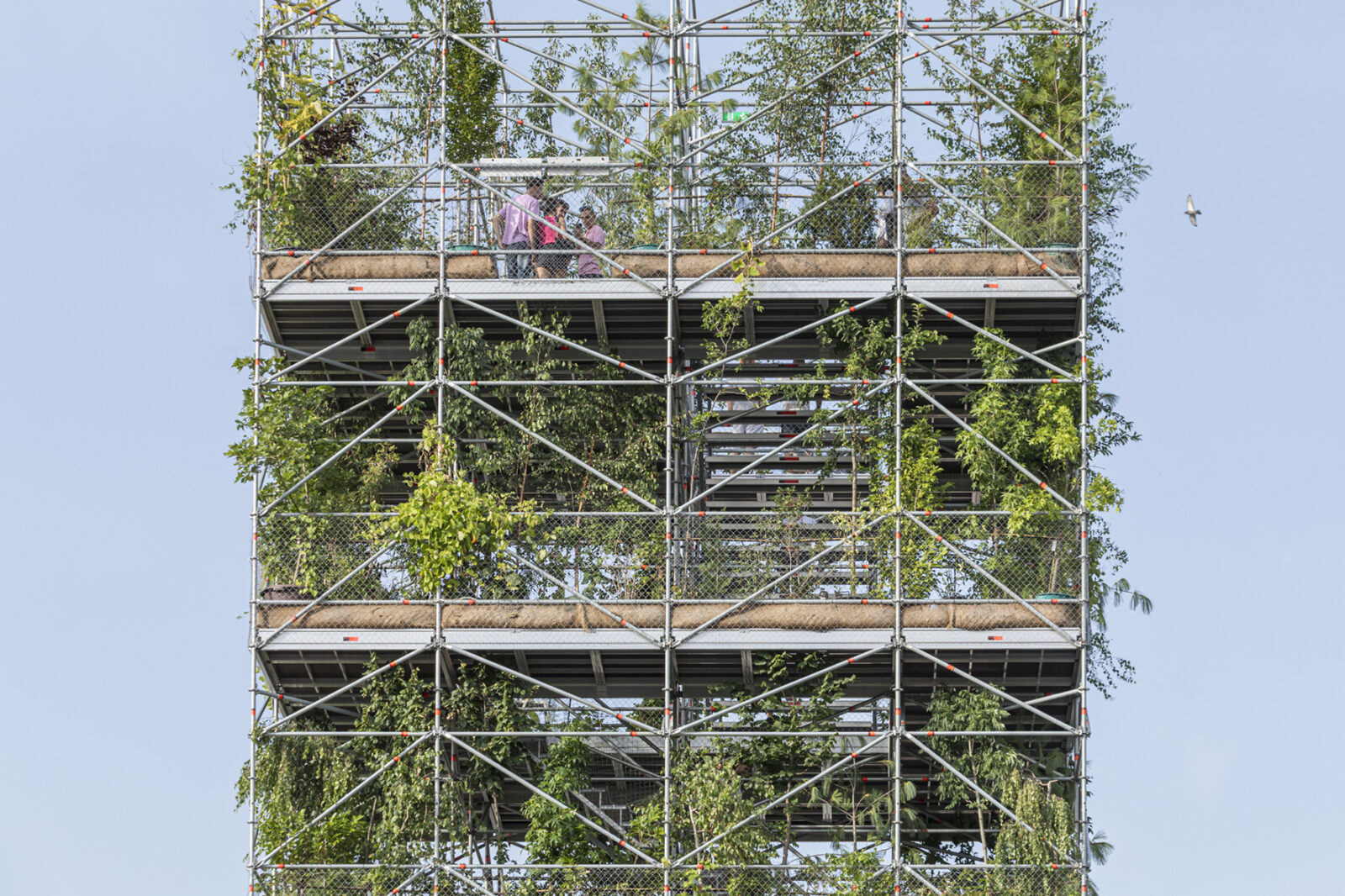
Projects in Slovakia
Reconstruction and extension and of the Slovak National Gallery by Architekti B.K.P.Š.
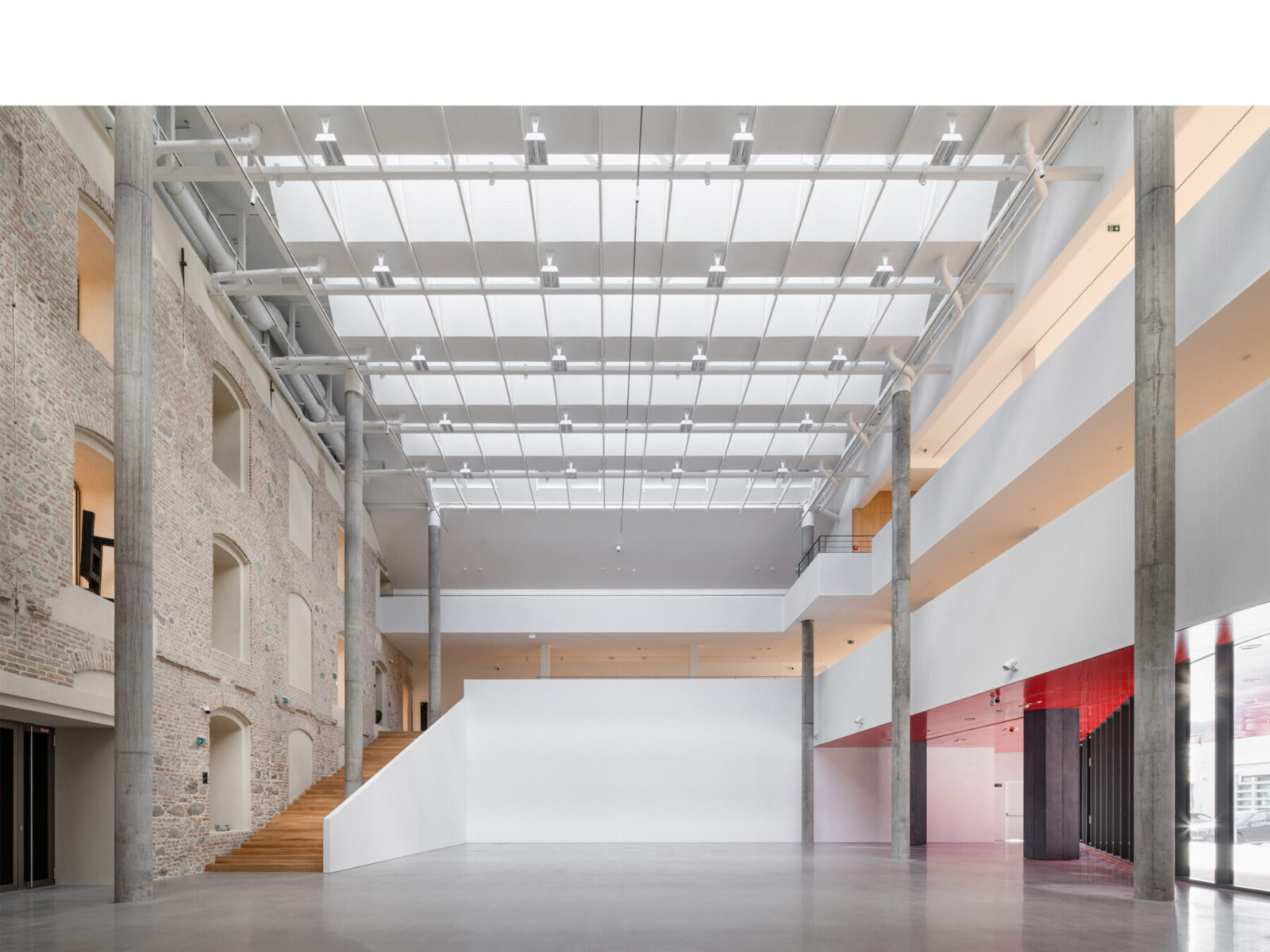
Projects in Slovenia
Covering the remains of the Church of St. John the Baptist in the Žiče Charterhouse by MEDPROSTOR, arhitekturni atelje d.o.o.
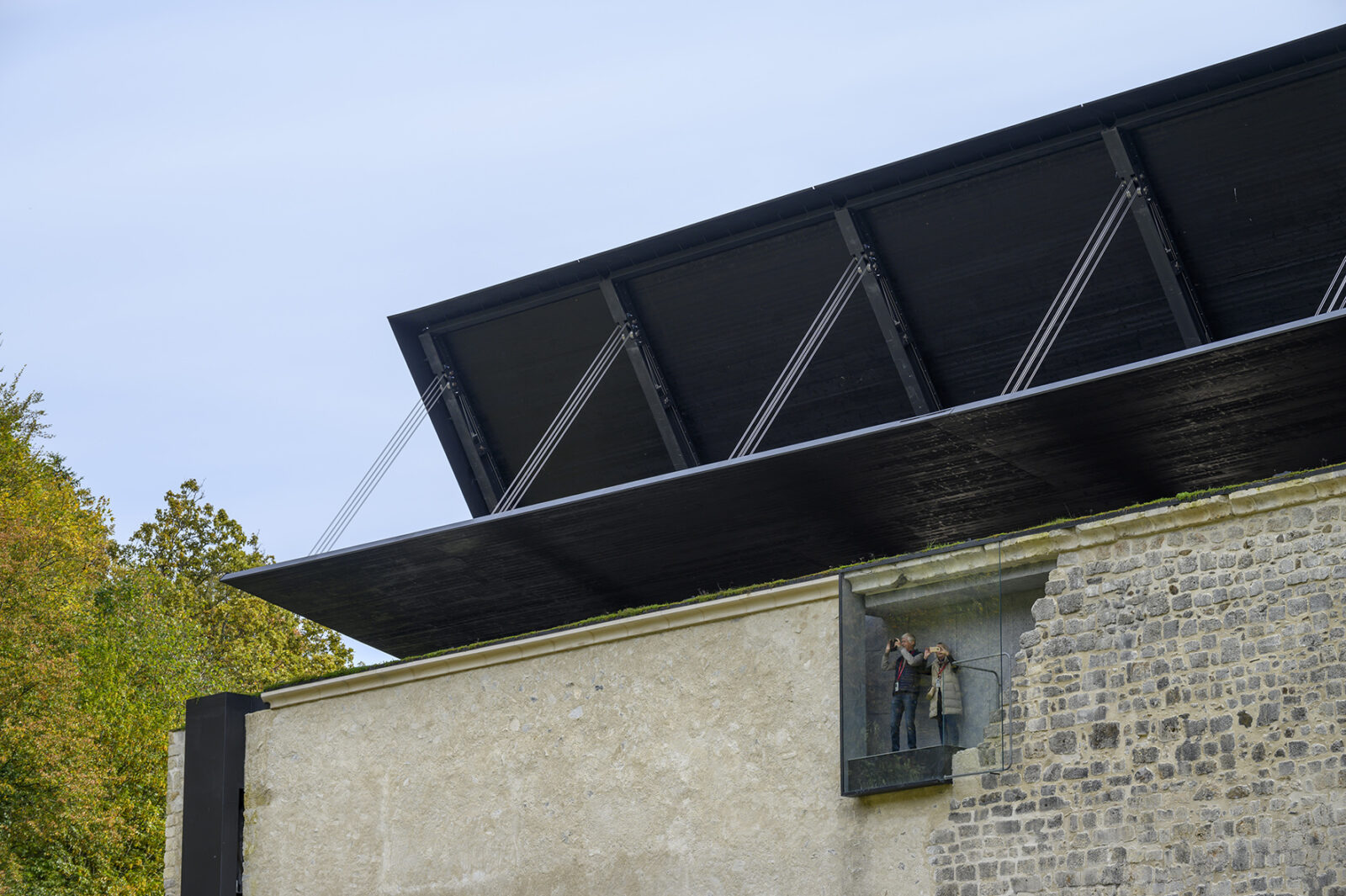
Bohinj Kindergarten by KAL A; ARREA architecture
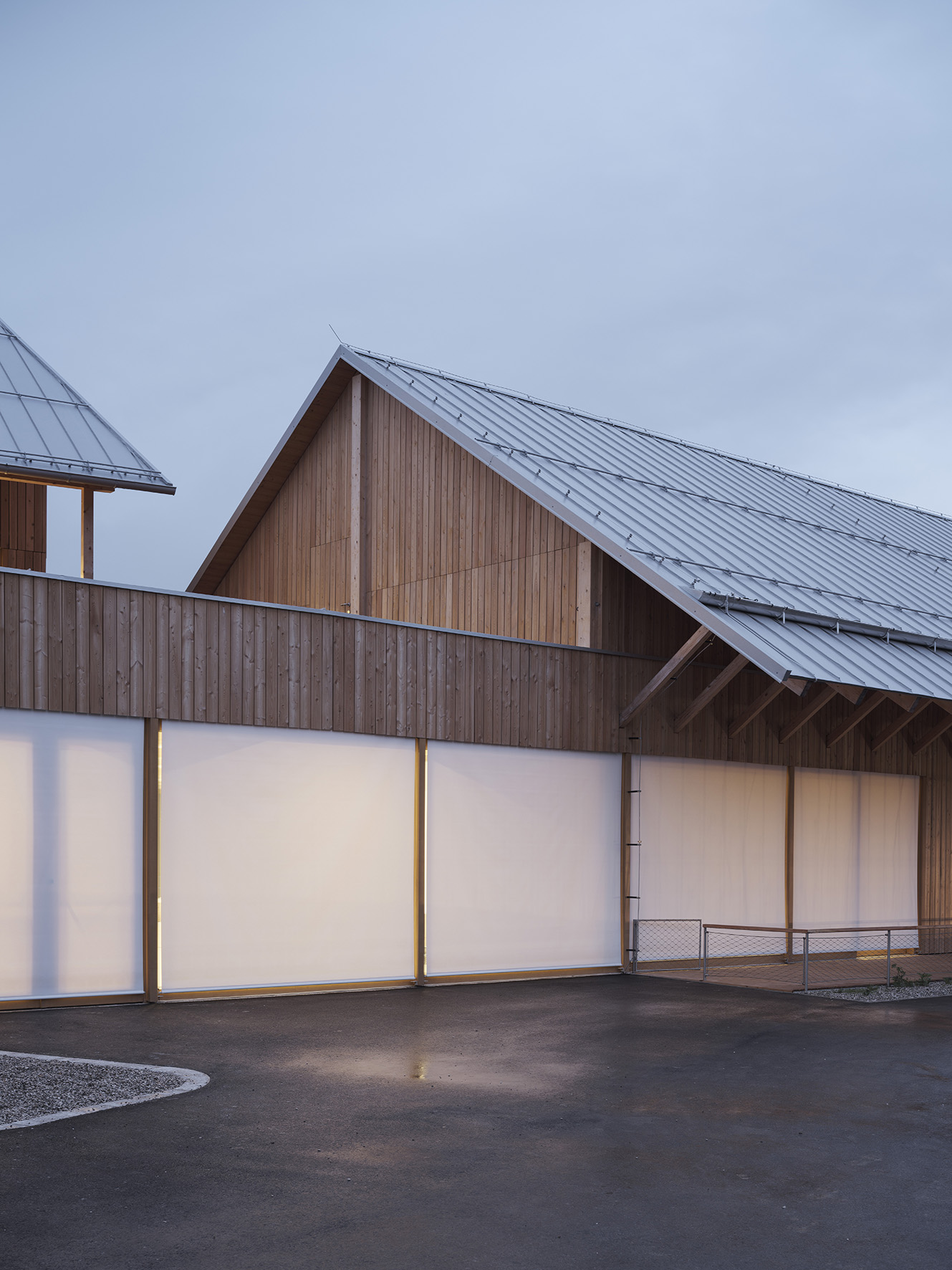
Projects in Spain
LIVING IN LIME – 42 social housing in Son Servera by peris + toral
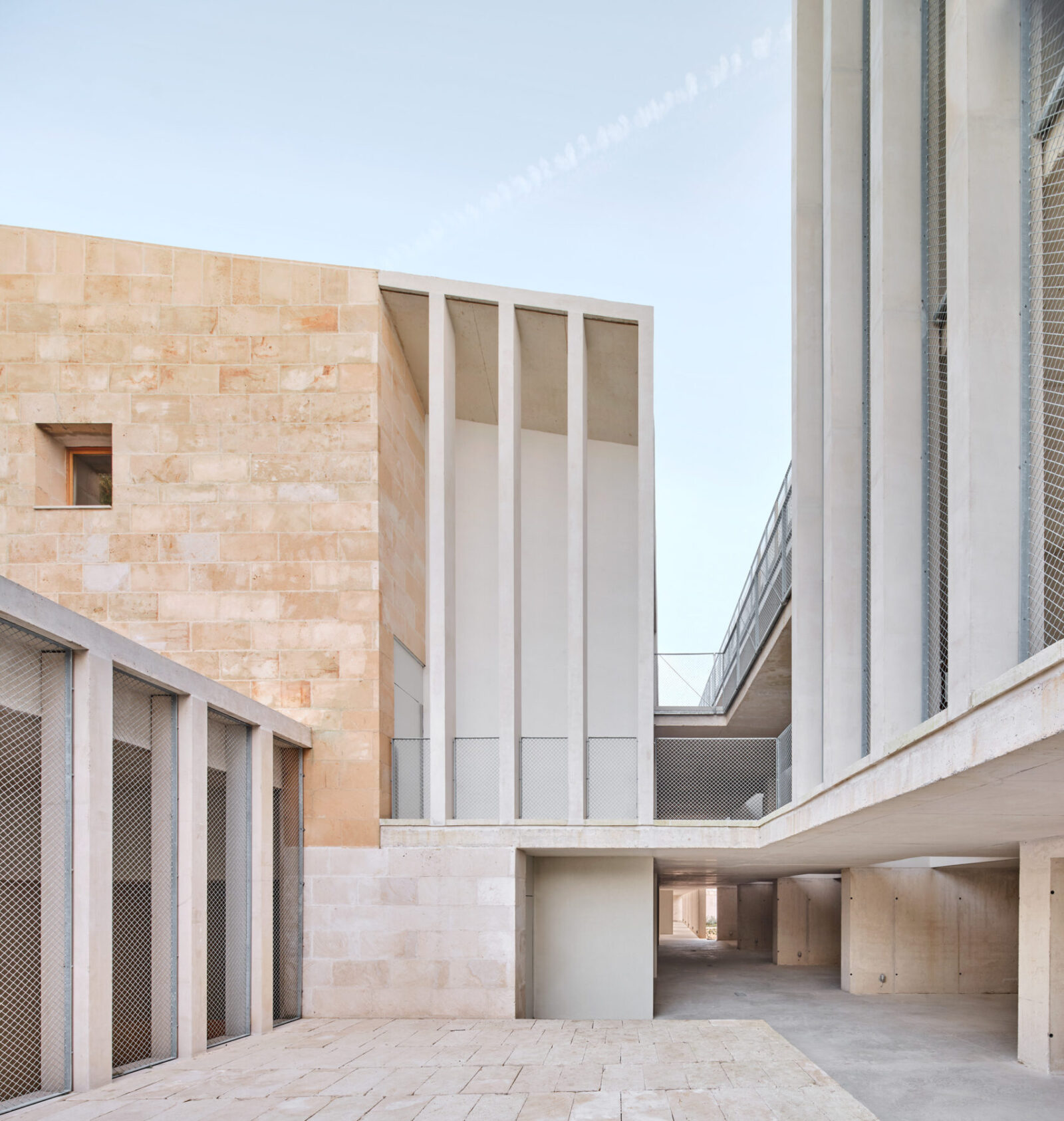
Day centre for young people with autism spectrum disorder by AV62 Arquitectos
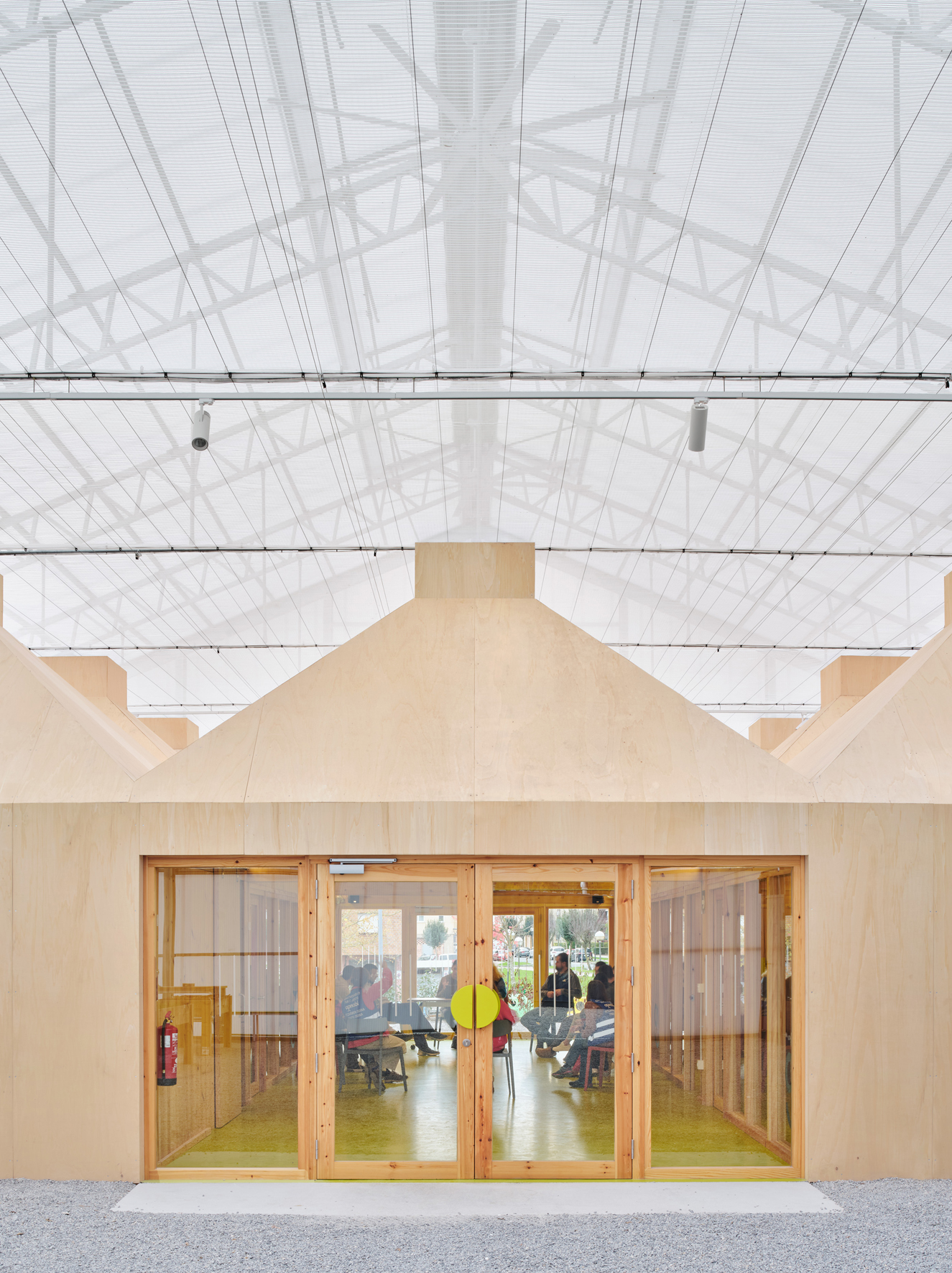
Municipal Pools in Castromonte by Óscar Miguel Ares
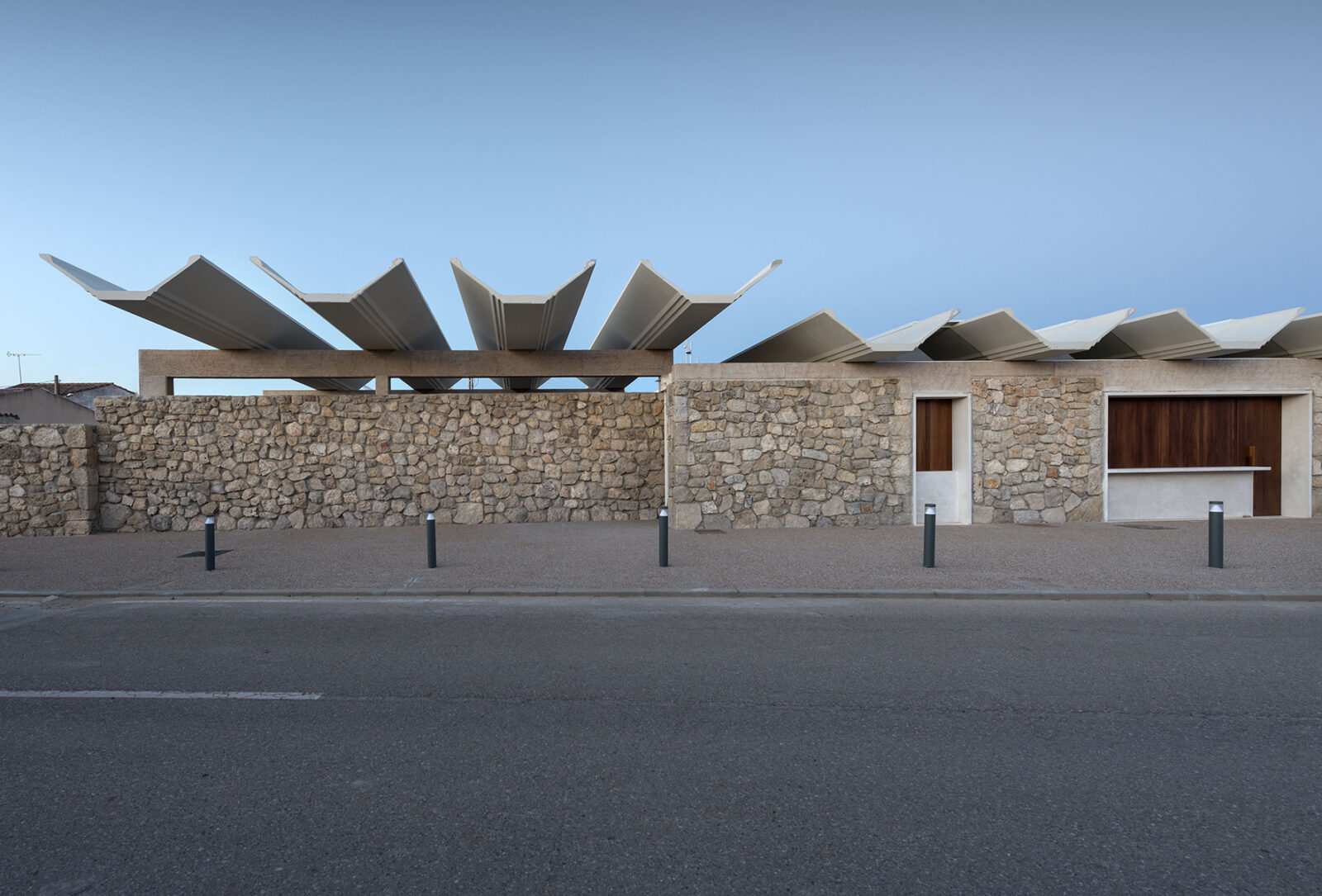
Social housing 1737 by Harquitectes
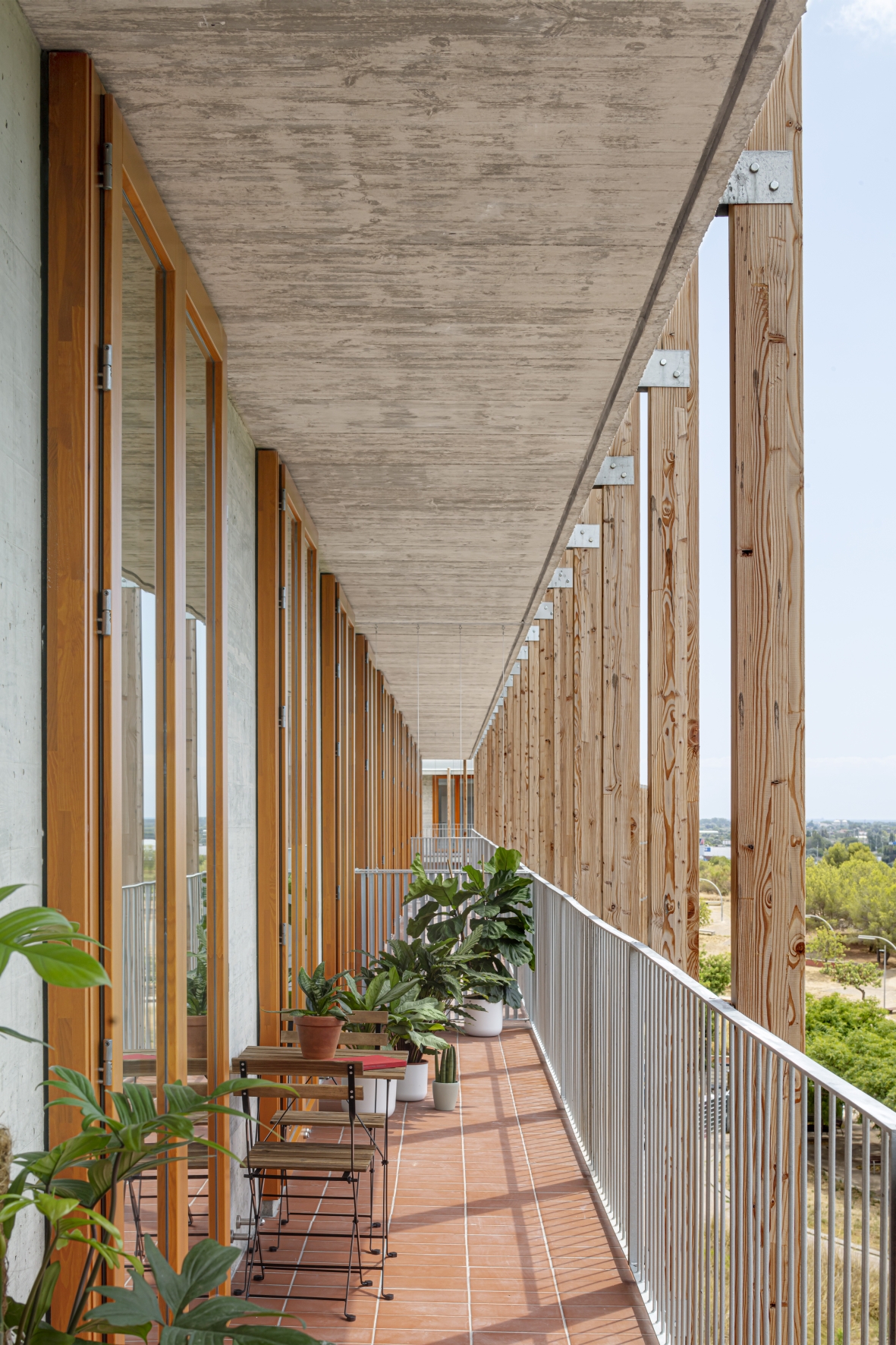
Reggio School by ANDRES JAQUE / OFFICE FOR POLITICAL INNOVATION
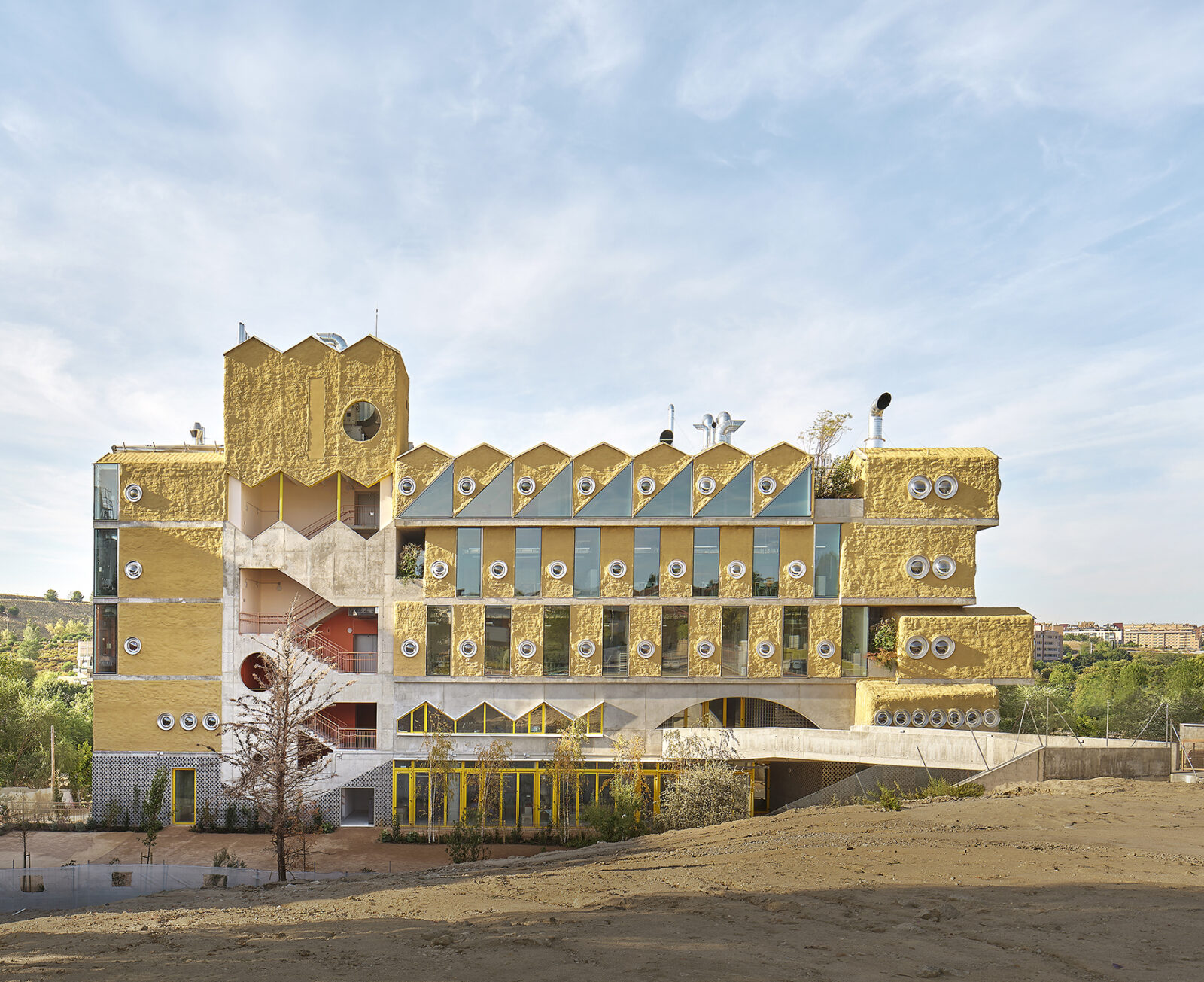
Gabriel García Márquez Library by SUMA arquitectura
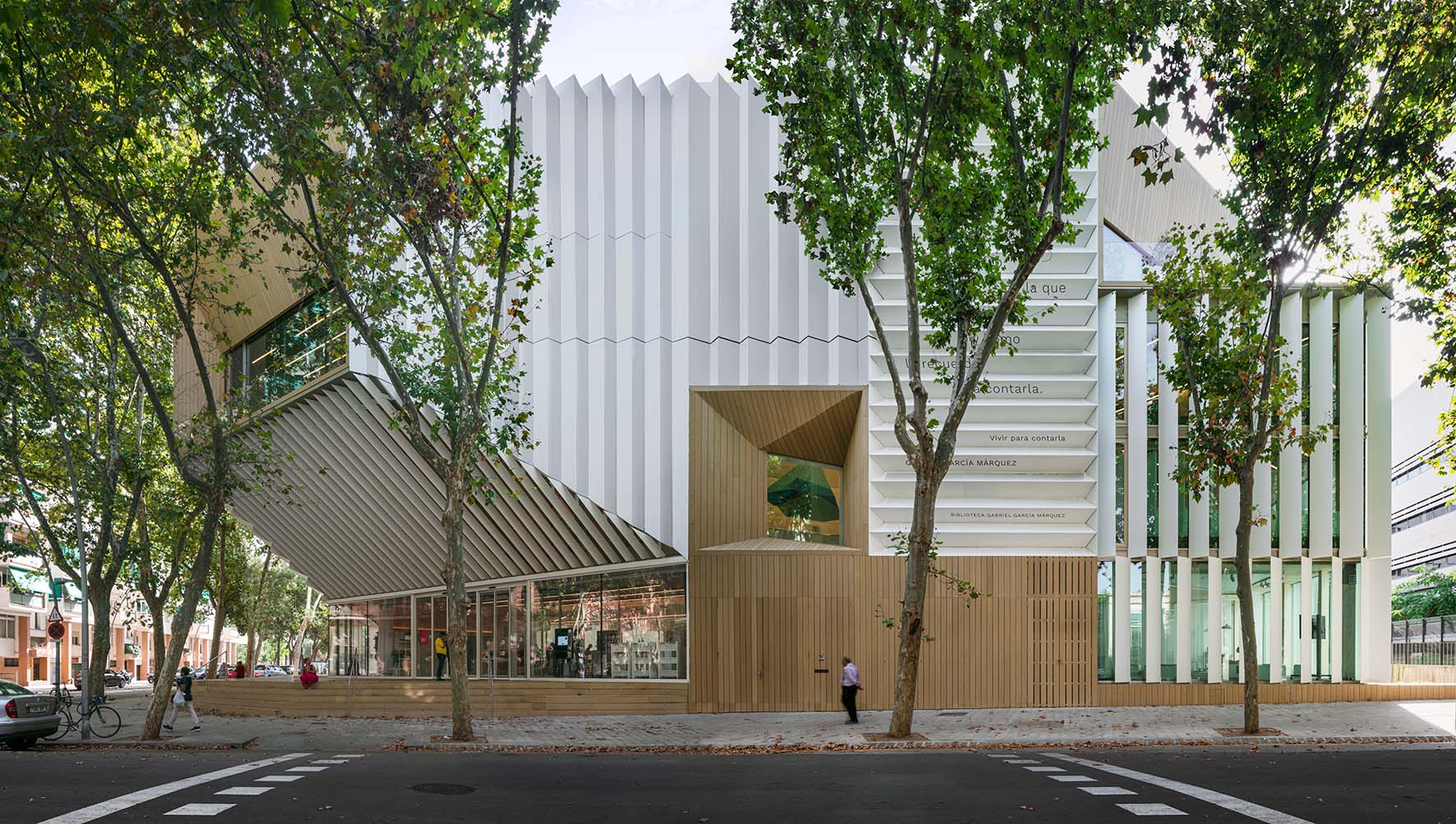
Projects in Sweden
Liljevalchs+ by Wingårdh Arkitektkontor AB
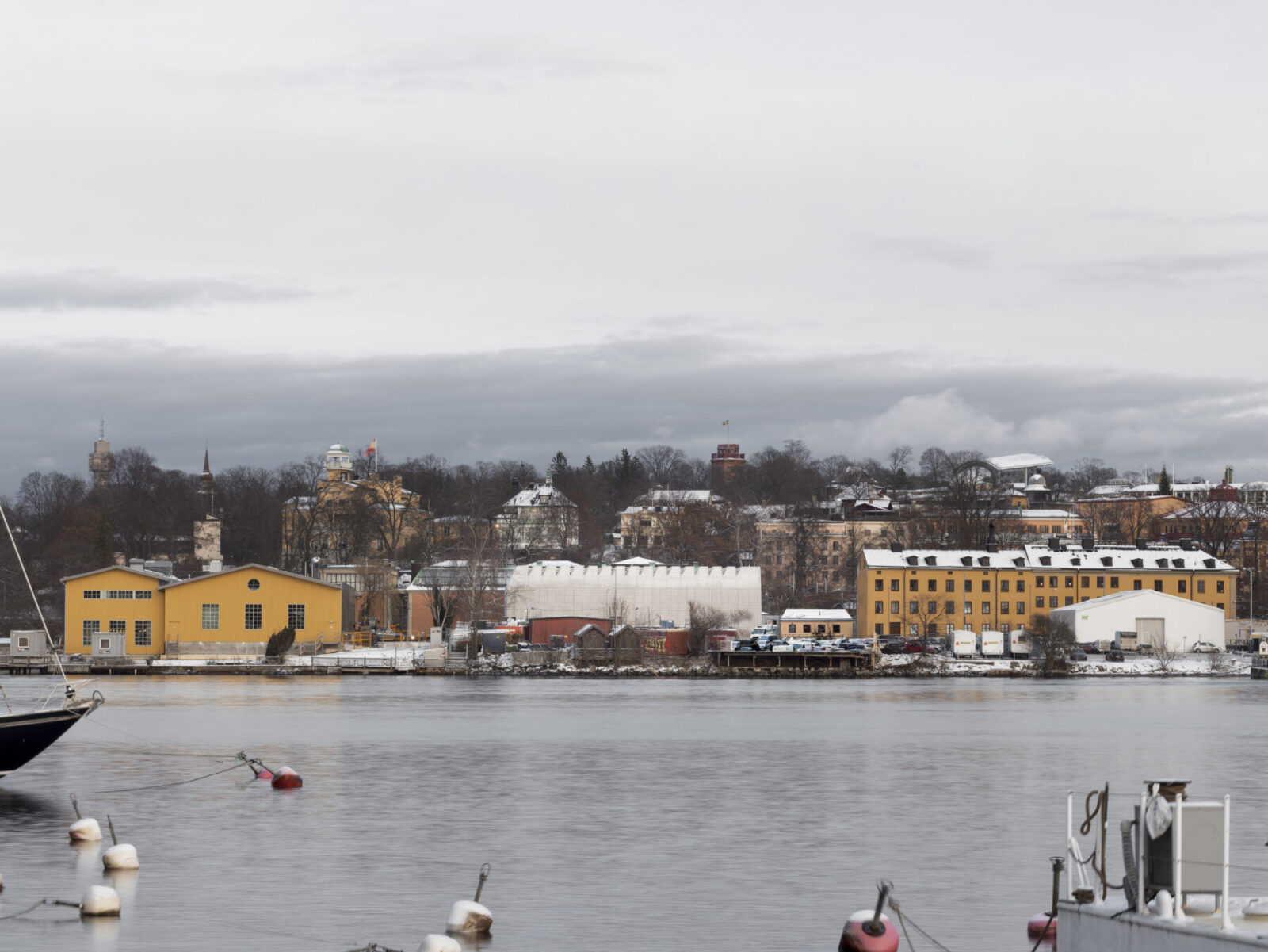
Hage by Brendeland & Kristoffersen architects
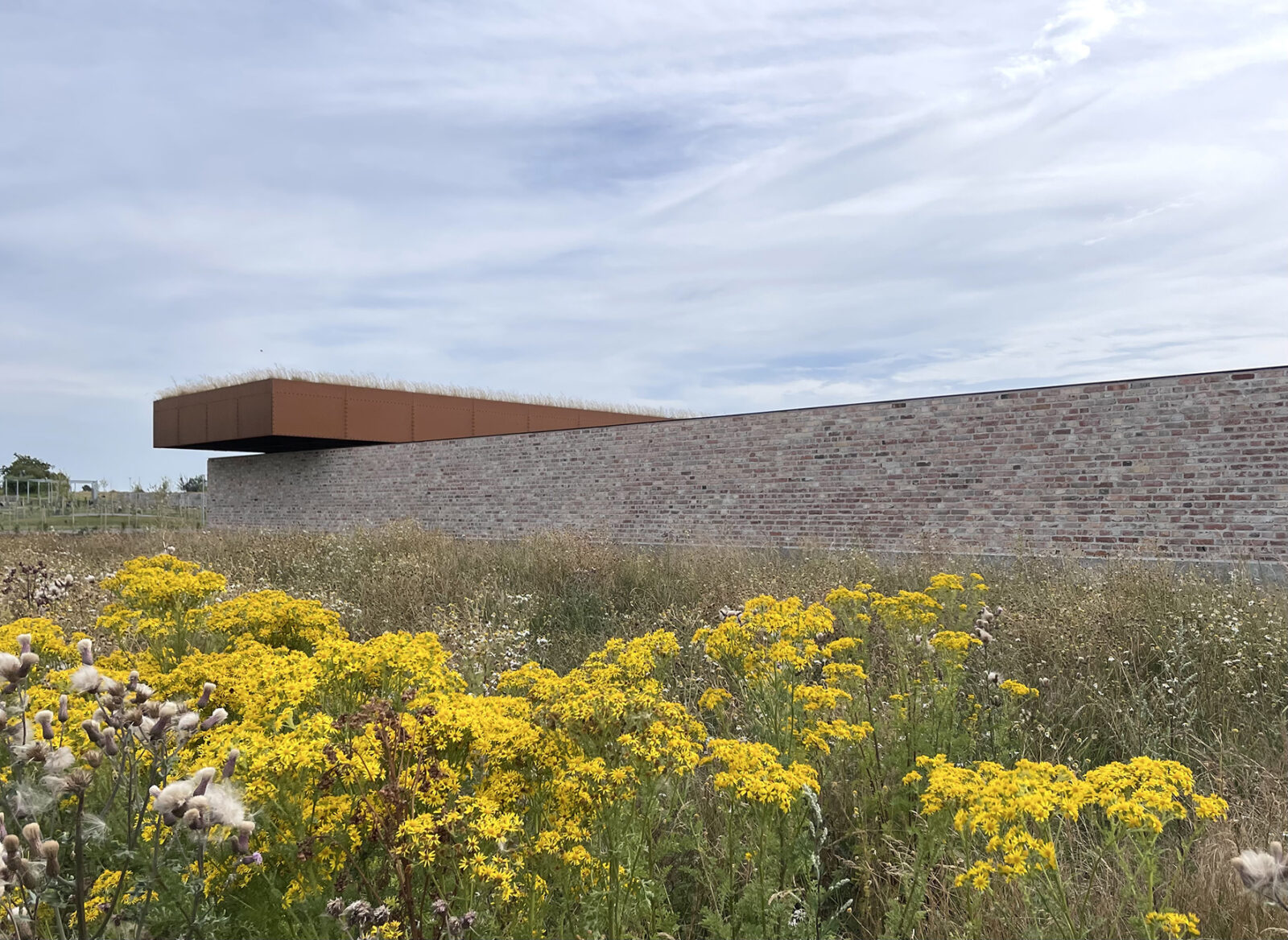
Projects in The Netherlands
Art Pavilion M by Studio Ossidiana
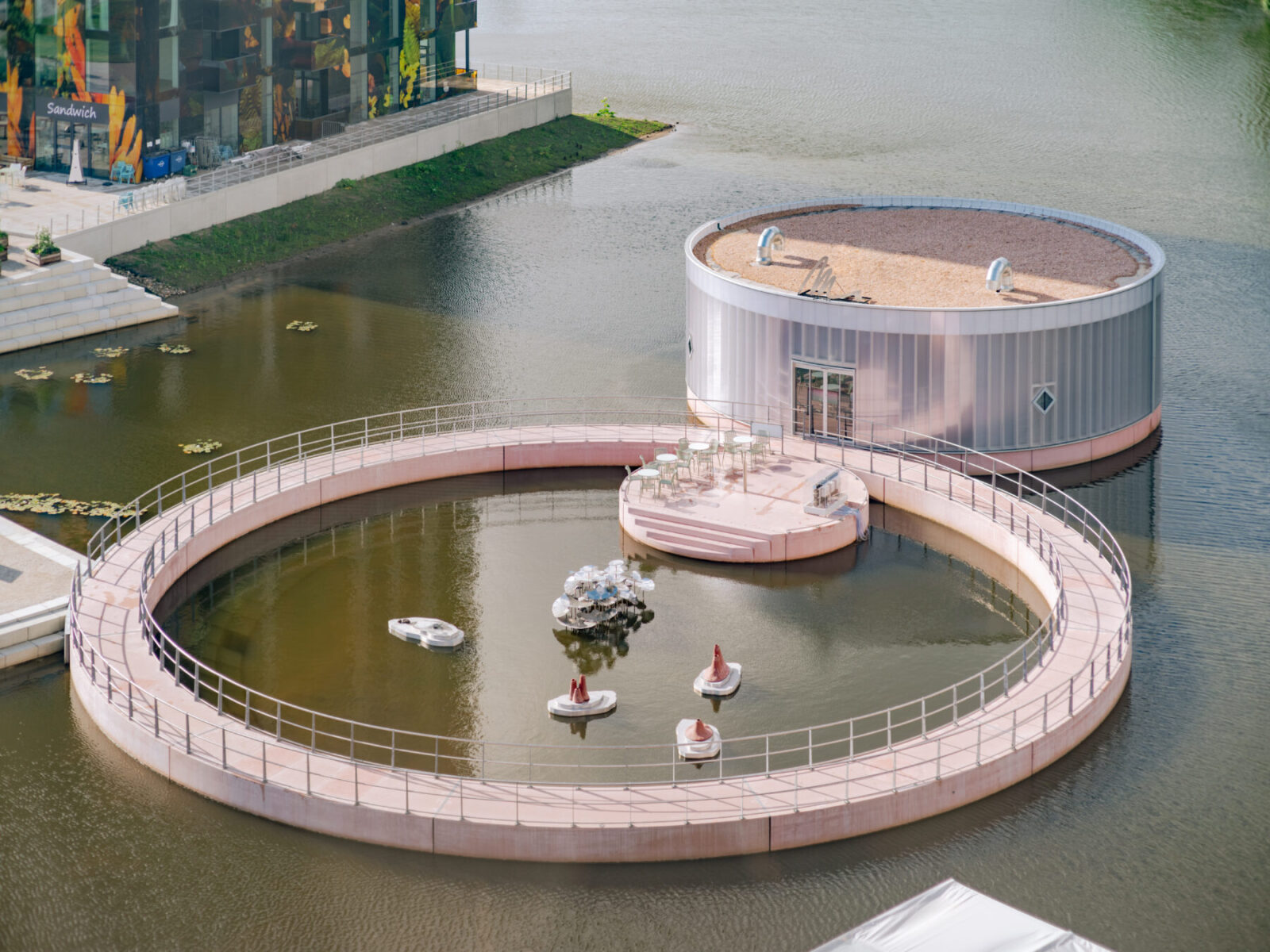
Some of the quotes by the jury members during their conversations:
“The selected projects go beyond their façades, there is a position regarding the reason for the existence of each construction, who it should serve and the responsibility of putting it at the disposal of society. ”
Tinatin Gurgenidze
“We thought it was important to show the diversity of themes, scales and approaches to architecture through this selection of projects; the attitude and positioning of architects towards the treatment of the complexity of the world and the correspondence of their thoughts and identities with the proposals.”
Frédéric Druot
“In most of the projects you can feel that the architects want to express their own ideas – architecture is still an art – but at the same time they try to exploit the potential of what architecture can become in a society that is changing in a very radical way.” Pippo Ciorra
“In most of the projects you can feel that the architects want to express their own ideas – architecture is still an art – but at the same time they try to exploit the potential of what architecture can become in a society that is changing in a very radical way. This selection is a faithful picture of what architecture is today in relation to society.”
Pippo Ciorra
Calendar and events
The finalists will be announced at the beginning of February 2024. The Architecture and Emerging Winners will be announced in mid-April. The EUmies Awards Day including the Awards Ceremony, will take place on May 13/14, 2024, at the Mies van der Rohe Pavilion in Barcelona, in a day-long-event that will include lectures by the authors of the winning and finalist works, discussions with the architects, clients, policymakers and jury members; the exhibition with the 362 works participating in the EUmies Awards 2024; and events of the Barcelona Architecture Weeks. The shortlisted works will be open to the public following the Out & About program organised with Guiding Architects, so that everybody can learn more about them in presence of their authors and critics. Dates and organisation will soon be announced on EU Mies Awards and social media channels.
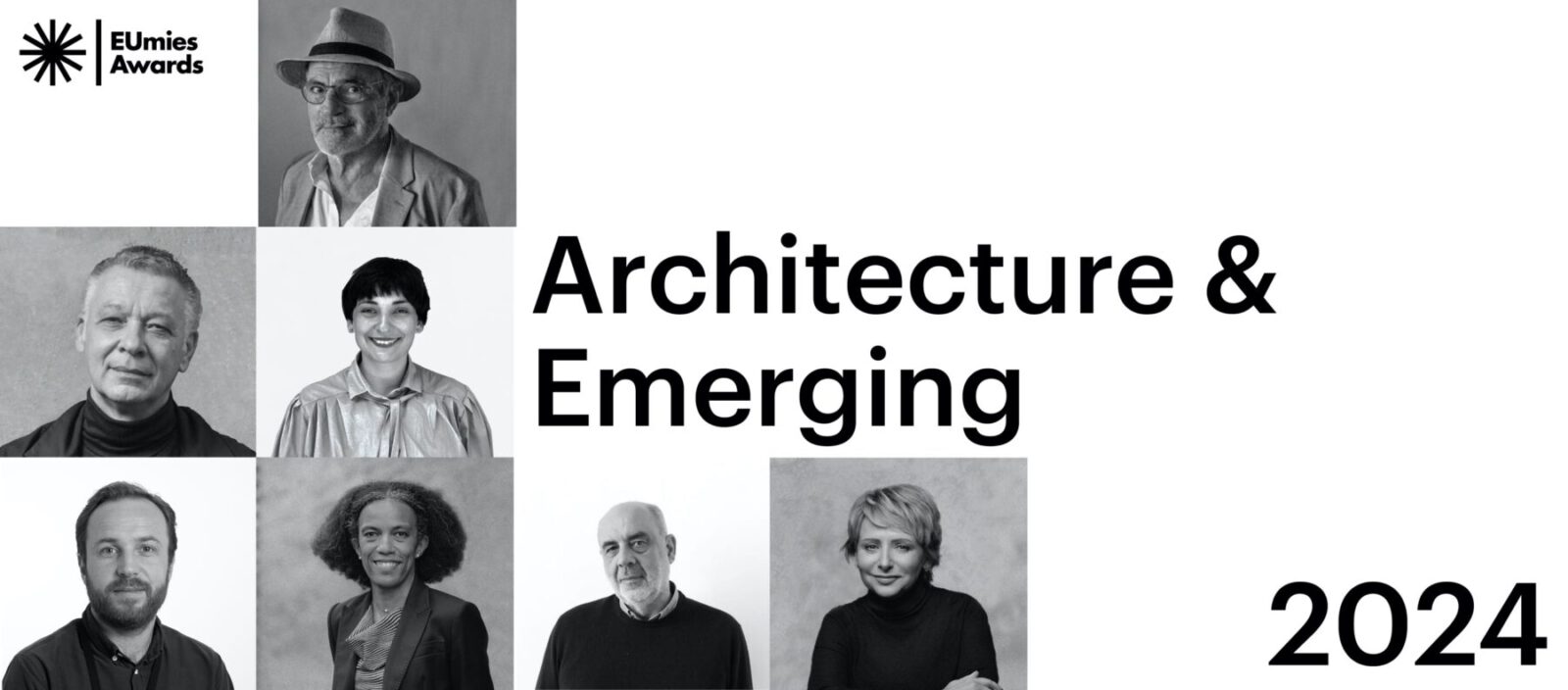
READ ALSO: The Jury Shortlist | GRAIL AWARDS 2024
